注記(区切り記号について)
この翻訳文には、点字に対応させるための区切り記号(マス空け)を入れています。
「|」 … 1マスあけ
「||」 … 2マスあけ
点訳の際に必要となる区切りを、見える形で示しています。
読み進めるうちに、文章のリズムや切れ目を意識していただければ幸いです。
同時に、『Brille Editor System ver.8』用の『BESファイル』を、点訳作品アーカイブのページにてダウンロードできるように公開しています。(点訳作品アーカイブはこちら💁)
Adventure I
A SCANDAL IN BOHEMIA
||||||||シャーロック=ホームズの|冒険
||||||第一部
||||ボヘミアの|醜聞
第一章
To Sherlock Holmes she is always the woman. I have seldom heard him mention her under any other name. In his eyes she eclipses and predominates the whole of her sex. It was not that he felt any emotion akin to love for Irene Adler.
All emotions, and that one particularly, were abhorrent to his cold, precise but admirably balanced mind.
<シャーロック=ホームズ>にとって、|彼女は|常に|『あの女』であった。||ほかの|呼び名で|彼が|彼女を|語るのを、|私は|ほとんど|聞いた|ことがない。||彼の|目には、|彼女こそが|すべての|女を|凌ぎ、|圧倒的な|存在だった。
もっとも、|ホームズが|<アイリーン・アドラー>に|恋愛に|似た|感情を|抱いた|わけではない。
あらゆる|感情、|とりわけ|その種の|感情は、|冷ややかで|正確にして|見事な|均衡を|備えた|彼の|精神には|耐えがたい|ものであった。
He was, I take it, the most perfect reasoning and observing machine that the world has seen, but as a lover he would have placed himself in a false position.
私が|思うに、|彼は|世界が|これまでに|見た|中で、|最も|完全な|推理と|観察の|精密|機械|であった。|しかし、|恋人|としては|自らを|間違った|立場に|置いて|しまうようだ。
He never spoke of the softer passions, save with a gibe and a sneer. They were admirable things for the observer—excellent for drawing the veil from men’s motives and actions.
彼が|甘い|感情|について|語るのを|聞いたことは|ない。||ただ|見下した|皮肉を|込めて|触れるのみ|だった。||そういう|感情は|観察者|にとっては|実に|好都合な|もので、|人間の|動機や|行動を|明らかに|するのに|格好の|材料だった。
But for the trained reasoner to admit such intrusions into his own delicate and finely adjusted temperament was to introduce a distracting factor which might throw a doubt upon all his mental results. Grit in a sensitive instrument, or a crack in one of his own high-power lenses, would not be more disturbing than a strong emotion in a nature such as his. And yet there was but one woman to him, and that woman was the late Irene Adler, of dubious and questionable memory.
しかし|理性的に|訓練された|人間が、|自らの|繊細で|精密に|調整された|性格に、|そうした|感情の|侵入を|許すことは、|すべての|思考の|成果を|疑わせる|要素を|持ち込むことに|ほかならない。||彼のような|性格に|強い|感情が|入り込むと|いうことは、|精密な|器具の|中に|砂が|入り込んだり|強力な|レンズに|ひびが|入るのと|同じくらい|致命的に|作用|するのである。
それでも|彼にとって、|唯一|ひとりの|女性が|存在した。||その|女性こそ、|すでに|亡くなった|アイリーン・アドラー。||いささか|怪しい|評判を|残す|人物である。
I had seen little of Holmes lately. My marriage had drifted us away from each other. My own complete happiness, and the home-centred interests which rise up around the man who first finds himself master of his own establishment, were sufficient to absorb all my attention, while Holmes, who loathed every form of society with his whole Bohemian soul, remained in our lodgings in Baker Street, buried among his old books, and alternating from week to week between cocaine and ambition, the drowsiness of the drug, and the fierce energy of his own keen nature.
近ごろ|ホームズとは、|あまり|顔を|合わせて|いなかった。||私の|結婚が、|ふたりの|間を|遠ざけて|しまったのだ。||自分自身の|満ち足りた|幸福と、|初めて|家庭を|盛った|男の|まわりで|自然と|わき起こる|家庭|中心の|関心ごとが、|私の|注意を|すべて|奪っていた。
そのあいだ、|ホームズは|生まれながらの|<ボヘミアン>||自由|奔放な|性質||で、|どんな|社交も|心底|嫌い、|<ベーカー街>の|下宿に|こもって|古い|蔵書を|読みふけり、|一週間|ごとに、|<コカイン>||麻薬||の|まどろみと、|彼の|鋭い|才能に|宿る|激しい|意欲との|間を|行き来していた。
He was still, as ever, deeply attracted by the study of crime, and occupied his immense faculties and extraordinary powers of observation in following out those clues, and clearing up those mysteries which had been abandoned as hopeless by the official police.
それでも|なお、|彼は|相変わらず|犯罪の|研究に|強く|ひかれ、|すぐれた|才能と|並はずれた|観察力を|駆使して、|警察が|解決の|望みなく|投げ出した|手がかりを|追跡し、|その|謎を|明らかに|していた。
From time to time I heard some vague account of his doings: of his summons to Odessa in the case of the Trepoff murder, of his clearing up of the singular tragedy of the Atkinson brothers at Trincomalee, and finally of the mission which he had accomplished so delicately and successfully for the reigning family of Holland.
Beyond these signs of his activity, however, which I merely shared with all the readers of the daily press, I knew little of my former friend and companion.
ときおり、|彼の|仕事について|あいまいな|噂を|耳にした。
たとえば、|<トレポフ>|殺しの|事件で|<オデッサ>へ|呼ばれたこと、|<トリンコマリー>での|<アトキンソン>兄弟の|奇妙な|悲劇を|解明|したこと、|そして|最後には、|<オランダ>の|王室ため、|
きわめて|繊細かつ|見事に|果たした|使命の|ことなどを|耳にした。||いずれも|コナン・ドイルの|著作の|中で|名前だけが|挙げられる|『未記録|事件』であり、|具体的な|内容は|明らかに|されていない。||
もっとも、|彼の|活躍|について|私が|知っていたのは、|新聞で|誰もが|目にする|程度のことで、|かつての|友人であり|相棒だった|彼について、|私は|ほとんど|何も|知らなかった。
One night—it was on the twentieth of March, 1888—I was returning from a journey to a patient (for I had now returned to civil practice), when my way led me through Baker Street.
ある夜、|1888年|3月20日|のことだった。
私は|往診からの|帰り道で(いまは|開業医|として|復帰して|いたのだが)、|その|道すがら|ベーカー街を|通ることに|なった。
As I passed the well-remembered door, which must always be associated in my mind with my wooing, and with the dark incidents of the Study in Scarlet, I was seized with a keen desire to see Holmes again, and to know how he was employing his extraordinary powers.
なつかしい|その|ドアの|前を|通ったとき、|そこは|私にとって、|かつての|プロポーズの|思い出と|『緋色の|研究』の|暗い|出来事とが|いつまでも|結びつく|場所だった。
私は|再び|ホームズに|会いたいという|強い|欲求に|かられ、|彼が|その|非凡な|才能を|どのように|発揮|しているのか|知りたいと|思った。
His rooms were brilliantly lit, and, even as I looked up, I saw his tall, spare figure pass twice in a dark silhouette against the blind.
He was pacing the room swiftly, eagerly, with his head sunk upon his chest and his hands clasped behind him.
To me, who knew his every mood and habit, his attitude and manner told their own story.
He was at work again. He had risen out of his drug-created dreams and was hot upon the scent of some new problem. I rang the bell and was shown up to the chamber which had formerly been in part my own.
彼の|部屋は|明るく|照らされていて、|私が|見上げると、|背の|高い|やせた|彼の|姿が、|窓の|ブラインドに|黒い|影となって、|二度|横切るのを|目にした。
彼は|胸に|頭を|うなだれ、|両手を|背後で|組みながら、|部屋の|中を|せわしなく|熱心に|行き来していた。
彼の|気分や|習慣を|すべて|知っている|私には、|彼の|態度や|しぐさから、|心の|様子が|理解できた。
彼は|再び|仕事に|没頭|していた。薬物が|生み出した|夢から|立ち上がり、|新たな|問題の|匂いを|嗅ぎつけて|いたのである。||私は|ベルを|鳴らし、|かつて|自分の|部屋の|一部でも|あった|上の|階の|一室に|案内された。
His manner was not effusive. It seldom was; but he was glad, I think, to see me. With hardly a word spoken, but with a kindly eye, he waved me to an armchair, threw across his case of cigars, and indicated a spirit case and a gasogene in the corner. Then he stood before the fire and looked me over in his singular introspective fashion.
彼は|決して|気持ちを|あらわに|することは|なかった。||もともと|そういう|男だが、|私に|会えて|喜んで|いるように|見えた。||ほとんど|言葉を|交わさずに、|しかし|親しげな|まなざしを|向けて、|私に|肘掛け|椅子を|すすめた。||葉巻の|箱を|投げて|よこし、|隅にある|酒瓶と|ガソジーン||当時|イギリスで|使われた、|家庭用の|炭酸水|製造器||を|指さした。

“Wedlock suits you,” he remarked. “I think, Watson, that you have put on seven and a half pounds since I saw you.”
「結婚|生活は|君に|よく|似合っているよ」
と、|彼は|言った。
「ワトスン、|前に|会った時より|七ポンド半||およそ|3.4キロ||は|太ったんじゃ|ないかと、|思うね」

“Seven!” I answered.
「7ポンド||およそ3.2キロ||だ!」と、私は|答えた。

“Indeed, I should have thought a little more. Just a trifle more, I fancy, Watson. And in practice again, I observe. You did not tell me that you intended to go into harness.”
「なるほど、|もう少し|考える|べきだったな。
いや、|ほんの|わずか、|もうちょっと|多いんじゃ|ないかと|思うよ、|ワトスン。||それに、|また|医者を|始めた|ようだね。||君が|仕事に|戻る気が|あったとは、|知らなかったよ」

“Then, how do you know?”
「どうして|わかったんだ?」

“I see it, I deduce it. How do I know that you have been getting yourself very wet lately, and that you have a most clumsy and careless servant girl?”
「見れば|わかるし、|推理も|できるだろう。||君が|このところ|ずいぶん|濡れて|帰ってきて|いることや、|とんでもなく|不器用で|いい加減な|メイドを|雇って|いること。||どうして|それが|わかるのか、だって?」

“My dear Holmes,” said I, “this is too much. You would certainly have been burned, had you lived a few centuries ago. It is true that I had a country walk on Thursday and came home in a dreadful mess, but as I have changed my clothes I can’t imagine how you deduce it. As to Mary Jane, she is incorrigible, and my wife has given her notice, but there, again, I fail to see how you work it out.”
「やれやれ、|きみ、|ホームズ」|と、|私は|言った。
「これは|さすがに|やりすぎだ。|もし|何世紀か|昔に|生きていたら、|君は|まちがいなく|火あぶりに|されていたな。||たしかに|木曜日に|田舎道を|散歩して、|泥だらけに|なって|帰ったよ。||でも|今日は|その|服は|着ていないのに、|どうして|君が|わかったのか|見当も|つかない。||<メアリー・ジェーン>のことだが、|あれは|手に負えない|娘で、|妻が|もう|暇を|出したんだ。||だが、|そのことだって、|君が|どうやって|見抜いたのか、|やっぱり|わからない」


He chuckled to himself and rubbed his long, nervous hands together.
“It is simplicity itself,” said he; “my eyes tell me that on the inside of your left shoe, just where the firelight strikes it, the leather is scored by six almost parallel cuts.
Obviously they have been caused by someone who has very carelessly scraped round the edges of the sole in order to remove crusted mud from it.
Hence, you see, my double deduction that you had been out in vile weather, and that you had a particularly malignant boot-slitting specimen of the London slavey.
As to your practice, if a gentleman walks into my rooms smelling of iodoform, with a black mark of nitrate of silver upon his right forefinger, and a bulge on the right side of his top-hat to show where he has secreted his stethoscope, I must be dull, indeed, if I do not pronounce him to be an active member of the medical profession.”
彼は|くすくすと|笑い、|細くて|落ち着きのない|長い|手を|こすり|合わせた。
「こんなのは|いたって|簡単さ」|と、|彼は|言った。
「君の|左の|靴の|内側の|面に、|ちょうど|暖炉の|灯りが|当たっていて、|ほぼ|平行に|切り傷が|6本、|靴の|革に|ついているのが|見えるんだ。||それは|明らかに|誰かが|靴底の|縁に|こびりついた|泥を|落とそうとして、|いい加減に|削り取った|跡だ。||それで|君が|ひどい|天気の|中を|出歩いたこと、|それに、|ロンドンの|メイドの|中でも、|とりわけ|靴に|傷を|つけるような|始末に|負えない|娘を|雇って|いること、|この|二つを|同時に|推理|できたって|わけさ。
君の|仕事について|言うと、|もし|一人の|紳士が|私の|部屋に|入ってきて、|<ヨードホルム>||独特の|匂いがする|消毒液||の|匂いをさせ、|右手の|人さし指に|硝酸銀||皮膚に|付着すると|黒い|シミが|できる|医薬品||の|黒い|染みを|つけ、|さらに|シルクハットの|右側が|ふくらんでいて、|そこに|聴診器を|隠して|いるのが|わかるとしたら、|そんな|人物を|現役の|医者だと|断定|できない|ようでは、|私の|頭は|鈍すぎる|というものだよ」

I could not help laughing at the ease with which he explained his process of deduction. “When I hear you give your reasons,” I remarked, “the thing always appears to me to be so ridiculously simple that I could easily do it myself, though at each successive instance of your reasoning I am baffled until you explain your process. And yet I believe that my eyes are as good as yours.”
私は、|彼が|推理の|手順を|いともたやすく|説明|するのを|聞いて、|思わず|笑って|しまった。
「君が|理由を|話すのを|聞くとね」と|私は|言った。
「それが、|いつも|笑って|しまうほど|単純に|思えて、|自分でも|簡単に|できそうな|気がするよ。||ところが、|君の|推理の|それぞれの|段階ごとに、|君が|説明して|くれるまで、|僕には|まるで|見当が|つかないんだ。||それでも|僕の|目は、|君の|目と|同じくらい|確かだと|思っているが」

“Quite so,” he answered, lighting a cigarette, and throwing himself down into an armchair.
“You see, but you do not observe. The distinction is clear. For example, you have frequently seen the steps which lead up from the hall to this room.”
「そのとおりだよ」と、|ホームズは答えて、|たばこに|火を|つけ、|肘掛け|椅子に|どさりと|腰を|おろした。
「君は|見ている。||けれど|観察して|いないんだ。||違いは|はっきり|しているよ。||たとえば、|1階の|ホールから|この|部屋へ|上がってくる|階段を、|君は|よく|目にして|いるだろう」

“Frequently.”
「しょっちゅうだ」

“How often?”
「どのくらいだ?」

“Well, some hundreds of times.”
「そうだな、|何百回かは|あるよ」

“Then how many are there?”
「では、|何段ある?」

“How many? I don’t know.”
「何段だって?||わからないよ」

“Quite so! You have not observed. And yet you have seen. That is just my point. Now, I know that there are seventeen steps, because I have both seen and observed.
By the way, since you are interested in these little problems, and since you are good enough to chronicle one or two of my trifling experiences, you may be interested in this.”
「そのとおり!||君は|観察|していない。||けれども|見てはいる。||それが|まさに|僕の|言いたい|ことなんだ。||さて|僕は、|17段あると|知っている。||なぜなら、|見ただけでなく|観察も|してきたからさ。||ところで、|君は|こうした|ちょっとした|問題に|興味を|持っているし、|僕の|些細な|経験を|一つ二つ|記録して|くれている。||ならば、|これにも|興味が|あるだろう」
He threw over a sheet of thick, pink-tinted notepaper which had been lying open upon the table.
彼は、|テーブルの|上に|ひろげてあった|厚手の|ピンク|色の|便箋を、|ひょいと|僕の方へ|よこした。

“It came by the last post,” said he. “Read it aloud.”
「さっきの|郵便で|来たんだ。||声に|出して|読んでみてくれ」と|彼は|言った。
The note was undated, and without either signature or address.
“There will call upon you to-night, at a quarter to eight o’clock,” it said, “a gentleman who desires to consult you upon a matter of the very deepest moment. Your recent services to one of the royal houses of Europe have shown that you are one who may safely be trusted with matters which are of an importance which can hardly be exaggerated. This account of you we have from all quarters received. Be in your chamber then at that hour, and do not take it amiss if your visitor wear a mask.”
その|手紙には|日付もなく、|署名も|宛名も|なかった。
「今夜、|8時|15分前に、|紳士が|あなたを|訪ねてきます。||その|紳士は、|きわめて|重大な|問題|について、|あなたに|ご相談|したいと|思っています。||あなたが|先日、|ヨーロッパの|ある|王家に|力を|お貸しに|なったことで、|この上なく|重大な|問題でも|安心して|託すことが|できる方だと、|広く|伝わってます。||その|お噂は、|各|方面から|私どもに|届いています。||ですので、|その|時刻には|お部屋で|お待ちください。||なお、|訪れる|紳士が|仮面を|つけていても、|気を|悪く|なさらぬよう|お願いします」

“This is indeed a mystery,” I remarked. “What do you imagine that it means?”
「これは|まったく|見当が|つかない」||僕は|ひとこと|言った。
「君は|どういう|意味だと|思ってるだ?」

“I have no data yet. It is a capital mistake to theorise before one has data. Insensibly one begins to twist facts to suit theories, instead of theories to suit facts. But the note itself. What do you deduce from it?”
「まだ|手がかりが|ないんだ。||データも|ないのに|理屈を|立てるのは|大きな|間違いだよ。||理屈を|事実に|合わせなきゃ|ならないのに、|いつのまにか|事実を|理屈に|合わせて|捻じ曲げて|しまうんだ。||さて、|この|手紙|そのものが|あるんだが、|君は|そこから|何を|推理する?」

I carefully examined the writing, and the paper upon which it was written.
“The man who wrote it was presumably well to do,” I remarked, endeavouring to imitate my companion’s processes.
“Such paper could not be bought under half a crown a packet. It is peculiarly strong and stiff.”
私は、|その|文字と、|それが|書かれた|用紙を|注意深く|調べた。
「この|手紙を|書いた|人物は、|たぶん|裕福な|人だね」
私は、ホームズの|やり方を|真似ようと|努力して|言ってみた。
「こんな|紙は、|半クラウン|以下では|手に|入らないよ。||特別に|強くて|固いんだ」

“Peculiar—that is the very word,” said Holmes. “It is not an English paper at all. Hold it up to the light.”
「特別、|まさに|その|言葉だ」
ホームズは|言った。
「これは|イギリスの|紙じゃないよ。||光に|透かしてごらん」

I did so, and saw a large “E” with a small “g,” a “P,” and a large “G” with a small “t” woven into the texture of the paper.
私は、|そのとおりに|してみると、|紙の|生地に、|大きな「E」と|小さな「g」、|それに|「P」、|さらに|大きな「G」と|小さな「t」が|織り込まれて|いるのが|見えた。

“What do you make of that?” asked Holmes.
「それを|どう思う?」と、|ホームズが|たずねた。

“The name of the maker, no doubt; or his monogram, rather.”
「きっと、|製紙|業者の|名前だろう。||いや、|むしろ|その|イニシャルかな」

“Not at all. The ‘G’ with the small ‘t’ stands for ‘Gesellschaft,’ which is the German for ‘Company.’
It is a customary contraction like our ‘Co.’ ‘P,’ of course, stands for ‘Papier.’ Now for the ‘Eg.’ Let us glance at our Continental Gazetteer.”
「いや、|そうじゃないよ。||大きな『G』に|小さな『t』は|『ゲゼルシャフト』を|表している。||ドイツ語で|『会社』という|意味だ。||これは、|わが国の|『Co.』と|同じような、|ふつうの|略し方|なんだ。||『P』は|もちろん|『紙(パピエ)』を|表している。||さて、|『Eg』だ。||大陸|地名|辞典を|見てみよう」」
He took down a heavy brown volume from his shelves.
彼は|本棚から|重そうな|分厚い|茶色の|本を|取り|出した。

“Eglow, Eglonitz—here we are, Egria. It is in a German-speaking country—in Bohemia, not far from Carlsbad.
‘Remarkable as being the scene of the death of Wallenstein, and for its numerous glass-factories and paper-mills.’
Ha, ha, my boy, what do you make of that?” His eyes sparkled, and he sent up a great blue triumphant cloud from his cigarette.
「<エグロー>、|<エグロニッツ>、あったぞ、|<エグリア>だ。||ドイツ語を|話す|国、<ボヘミア>に|あって、|<カールスバート>から|そう|遠くない。||<ヴァレンシュタイン>||1583–1634。||<ハプスブルク>家に|仕えた|ボヘミア|出身の|将軍||が|死んだ|場所として|知られ、|また、|多数の|ガラス|工場と|製紙|工場で|有名。』||ふむふむ。||ははは、|ねえ|君、|これを|どう思う?」
彼の|目は|きらきらと|輝き、|たばこからは|勝ち誇った|ような|大きな|青い|煙の|雲が|立ちのぼった。

“The paper was made in Bohemia,” I said.
「その|紙は|ボヘミアで|作られたんだ」
私は|言った。

“Precisely. And the man who wrote the note is a German.
Do you note the peculiar construction of the sentence—‘This account of you we have from all quarters received.’
A Frenchman or Russian could not have written that. It is the German who is so uncourteous to his verbs.
It only remains, therefore, to discover what is wanted by this German who writes upon Bohemian paper and prefers wearing a mask to showing his face. And here he comes, if I am not mistaken, to resolve all our doubts.”
「そのとおりだ。||そして、|この|手紙を|書いた|人物は|ドイツ人だよ。||文の|構造に|特徴が|あるのに|気づいたかい?
『その|お噂は、|各|方面から|私どもに|届いています。』
フランス人や|ロシア人は、|あんな|文章は|書かないよ。||動詞を|こんな風に|文の|最後に|押しやるのは、|ドイツ人の|書き方なんだ。||だから|残って|いるのは、|この|ボヘミアの|紙で|手紙を|書き、|顔を|見せないように|仮面を|つけてくる|という|この|ドイツ人が、|いったい|何を|望んで|いるのかを|突きとめる|ことだけだ。||そして|もし、|僕が|間違って|いなければ、|彼が|今から|やって来て、|われわれの|疑問を|すべて|明らかに|してくれるよ」
As he spoke there was the sharp sound of horses’ hoofs and grating wheels against the curb, followed by a sharp pull at the bell. Holmes whistled.
彼が|そう|言ったとき、|馬の|ひづめの|鋭い|音と、|車輪が|縁石に|こすれて|ガリガリと|きしむ音が|ひびき、|つづいて|呼び鈴が|ぐいっと|引かれた。||ホームズが|ヒューッと|口笛を|鳴らした。

“A pair, by the sound,” said he.
“Yes,” he continued, glancing out of the window.
“A nice little brougham and a pair of beauties. A hundred and fifty guineas apiece. There’s money in this case, Watson, if there is nothing else.”
“Not a bit, Doctor. Stay where you are. I am lost without my Boswell. And this promises to be interesting. It would be a pity to miss it.”
「音からすると|二頭立て||富裕層が|乗る|馬2頭で|引く|馬車||だな」と、彼は|言った。
「やはり」
窓の|外を|ちらりと|見ながら、|彼は|つづけた。
「なかなか|上等な|ブロウム|馬車||当時、ロンドンで|流行した|都会的な|小型|四輪|馬車||に、|見事な|二頭の|馬だ。||一頭あたり|150ギニー||イギリスの|金貨の|単位||は|するね。||ワトスン、|この件は|たとえ|他に|何も|なくても|金が|からんでいるよ。
いやいや|ドクター、|そのままで|いてくれ。||僕は|君なしでは|だめなんだ。||僕にとっての|<ボズウェル>||1740〜1795年||著名な|スコットランドの|伝記|作家||だからね。||しかも、|これは|おもしろく|なりそうだ。||見逃したら|もったいないよ」

“But your client—”
「でも|君の|依頼人は?」

“Never mind him. I may want your help, and so may he. Here he comes. Sit down in that armchair, Doctor, and give us your best attention.”
「彼のことは|気にするな。|僕は|君の|助けを|求めるかも|しれないし、|彼も|そうだ。||ほら|来た。||その|肘掛け|椅子に|座ってくれ、ドクター。||しっかり|集中して|聞いていてくれ」
A slow and heavy step, which had been heard upon the stairs and in the passage, paused immediately outside the door. Then there was a loud and authoritative tap.
のろくて|重たい|足音が、|扉の|すぐ|外で|止まった。|それから、|大きくて|威圧的な|ノックの|音がした。

“Come in!” said Holmes.
「入ってくれ!」と、|ホームズが|言った。
A man entered who could hardly have been less than six feet six inches in height, with the chest and limbs of a Hercules.
6フィート|6インチより|低いことは|まず|ないだろうと|思われる、|<ヘラクレス>||古代|ギリシャ|神話に|登場する|英雄。||怪力で|知られ、|多くの|冒険と|功績を|残した||の|胸と|手足を|持ったような|男が|入って来た。
His dress was rich with a richness which would, in England, be looked upon as akin to bad taste.
Heavy bands of astrakhan were slashed across the sleeves and fronts of his double-breasted coat, while the deep blue cloak which was thrown over his shoulders was lined with flame-coloured silk and secured at the neck with a brooch which consisted of a single flaming beryl.
その|服装は、|華やかでは|あったが、|イギリスでは|品がないと|見られる|たぐいの|贅沢さだった。||厚手の|<アストラカン>||中央|アジアの|子羊の|巻き毛の|毛皮。||19〜20世紀に、|高級|衣料に|用いられた||の|幅の|広い|縁取りが、|その|ダブルの|上着の|袖や|胸に|斜めに|飾られていた。||肩に|かけられた|濃い|青色の|マントには、|火を|思わせる|色の|シルクが|あしらわれ、|首もとは|一つの|燃えるような|ベリル||六角|柱状の|結晶を|つくる|鉱物で、|エメラルドや|アクアマリン|などを|含む|宝石の|一種||の|ブローチで|留められていた。
He carried a broad-brimmed hat in his hand, while he wore across the upper part of his face, extending down past the cheekbones, a black vizard mask, which he had apparently adjusted that very moment, for his hand was still raised to it as he entered.
From the lower part of the face he appeared to be a man of strong character, with a thick, hanging lip, and a long, straight chin suggestive of resolution pushed to the length of obstinacy.
手には|鍔の|広い|帽子を|持ち、|顔の|上|半分から|頬骨の|下までを|覆う|黒い|仮面を|つけていた。||どうやら|入ってくる|直前に|つけたばかりの|ようで、|部屋に| 入ったときも|まだ| その| 仮面に|手を|添えていた。
顔の|下半分は、|気性の|強い|男と|見てとれた。||厚く| 垂れた|唇と、|まっすぐに|のびた|長い|顎には、|決意が|行き過ぎて|頑固さに|変わったような|強情さが|うかがえた。

“You had my note?” he asked with a deep harsh voice and a strongly marked German accent.
“I told you that I would call.”
He looked from one to the other of us, as if uncertain which to address.
「わたしの|手紙を|受け取ったか?」と、|彼は|低く| 荒い |声に、| ドイツ|訛りを|まじえて|聞いた。
「訪ねると、|言ったはずだ」
どちらに|声を|かけるべきか|ためらうように、|私たち|二人を|見くらべた。|

“Pray take a seat,” said Holmes. “This is my friend and colleague, Dr. Watson, who is occasionally good enough to help me in my cases. Whom have I the honour to address?”
「どうぞ|おかけに|なってください」と、|ホームズが|言った。
「こちらは|友人であり、|事件において|私を|助けてくれる|仲間の|ドクター・ワトスン|です。||お名前を|うかがっても|よろしいですか?」

“You may address me as the Count Von Kramm, a Bohemian nobleman. I understand that this gentleman, your friend, is a man of honour and discretion, whom I may trust with a matter of the most extreme importance. If not, I should much prefer to communicate with you alone.”
「私を|<フォン・クラーム>伯爵と|呼んでもらいたい。||ボヘミアの|貴族である。||こちらの|ご友人は、名誉と| 慎みを|わきまえた|人物と|理解している。||きわめて|重大な|用件も|まかせられると|信じている。|
もし |そうでないなら、|あなた|ひとりとだけ|話を|したい」

I rose to go, but Holmes caught me by the wrist and pushed me back into my chair. “It is both, or none,” said he.
“You may say before this gentleman anything which you may say to me.”
私は|立ち上がろうと|したが、|ホームズが|私の| 手首を|つかみ、|椅子に|押しもどした。
「二人に|話すか、|まったく|話さぬかだ」と、|彼は 言った。
「私に|話せる|ことなら、|この|紳士の|前でも|話して|かまわない」

The Count shrugged his broad shoulders. “Then I must begin,” said he, “by binding you both to absolute secrecy for two years; at the end of that time the matter will be of no importance. At present it is not too much to say that it is of such weight it may have an influence upon European history.”
伯爵は|広い|肩を|すくめた。
「では|始めねば|なるまい」と、|彼は|言った。
「まずは、|二人に|二年間、|絶対的な|秘密を|守ると|約束して|いただきたい。||その|時期が|過ぎれば、|この件は|何の|意味も|なくなる。||だが|今は、|事態が|あまりに|重大で、|ヨーロッパの|歴史に|影響を|及ぼすほど|重大だと|いっても|言い過ぎ|ではない」

“I promise,” said Holmes.
「約束|しよう」と、|ホームズは|言った。|

“And I.”
「私も|です」

“You will excuse this mask,” continued our strange visitor. “The august person who employs me wishes his agent to be unknown to you, and I may confess at once that the title by which I have just called myself is not exactly my own.”
「この|仮面は|ご容赦|いただきたい」と、|奇妙な|訪問者は|言葉を|続けた。|
「わたしを|雇っている|高貴な|お方は、|あなた方に|使者の|正体を|明かさぬよう|望んで|おられる。
そこで|ただちに|白状|しておくが、|先ほど|名乗った|肩書きは、|実のところ|わたし|自身の|ものでは|ないのだ」

“I was aware of it,” said Holmes dryly.
「わかっていたよ」と、|ホームズは|そっけなく|言った。

“The circumstances are of great delicacy, and every precaution has to be taken to quench what might grow to be an immense scandal and seriously one of the reigning families of Europe. To speak plainly, the matter implicates the great House of Ormstein, hereditary kings of Bohemia.”
「この|事態は|まことに|繊細を|きわめる。|
もしや|燃え広がれば、|たちまち|巨大な|
醜聞|スキャンダル|となり、|ヨーロッパの|ある|王家の|名誉が|深く|傷つけられる|であろう。|ゆえに、|あらゆる|方策を|尽くして|
鎮めねば|ならぬのだ。
率直に|申し上げれば、|この件は|ボヘミアの|由緒|正しき|<オルムシュタイン>王家をも|
巻き込むものに|ほかならぬ」

“I was also aware of that,” murmured Holmes, settling himself down in his armchair and closing his eyes.
「それは|私も|承知|している」と、|ホームズは|つぶやき、|椅子に|体を|沈めて|目を|閉じた。
Our visitor glanced with some apparent surprise at the languid, lounging figure of the man who had been no doubt depicted to him as the most incisive reasoner and most energetic agent in Europe. Holmes slowly reopened his eyes and looked impatiently at his gigantic client.
訪問者は、|いくらか|驚いたように|こちらを|見た。|ヨーロッパで|もっとも|鋭い|理論家|にして、|もっとも|精力的な|探偵と|聞かされて|いたはずの|男が、|気だるげに|椅子に|もたれていた。

“If your Majesty would condescend to state your case,” he remarked, “I should be better able to advise you.”
「陛下が|ありのままに|事情を|お話しして|くだされば、|もっと|的確に|ご助言|できましょう」と、|彼は|言った。

The man sprang from his chair and paced up and down the room in uncontrollable agitation. Then, with a gesture of desperation, he tore the mask from his face and hurled it upon the ground. “You are right,” he cried; “I am the King. Why should I attempt to conceal it?”
その男は|椅子から|飛びあがり、|どうにも|抑えきれぬ|動揺のあまり、|部屋の中を|行ったり|来たりした。|
そして|絶望的な|仕草で、|顔から|仮面を|引きはがし、|床に|投げつけた。|
「君の|言うとおりだ!」|彼は|叫んだ。|
「わたしは|国王だ。|どうして|隠そうと|する必要が|あるのだ?」|

“Why, indeed?” murmured Holmes. “Your Majesty had not spoken before I was aware that I was addressing Wilhelm Gottsreich Sigismond von Ormstein, Grand Duke of Cassel-Felstein, and hereditary King of Bohemia.”
「おや、|確かに」と、ホームズは|つぶやいた。
「陛下が|口を|開かれる|前から、|わたしは|気づいて|いました。|いま、|私が|相手に|しているのは、|<ヴィルヘルム=ゴットシュライヒ=ジギスモント=フォン=オルムシュタイン>、|<カッセル=フェルシュタイン>の|大公にして、|世襲の|ボヘミア|国王|その人だと」|

“But you can understand,” said our strange visitor, sitting down once more and passing his hand over his high white forehead, “you can understand that I am not accustomed to doing such business in my own person. Yet the matter was so delicate that I could not confide it to an agent without putting myself in his power. I have come incognito from Prague for the purpose of consulting you.”
「しかし|君も|理解|できるだろう」
再び|腰を|下ろし、|高く|白い|額に|手を|やりながら、|奇妙な|来訪者は|言った。|
「このような|用件を|自ら|処理するのは、|私の|本来の|やり方では|ないのだ。||だが、|あまりに|繊細な|問題なので、|遣いの者に|ゆだねれば|その者に|弱みを|握られる|ことになる。|だからこそ、|プラハから|身分を|隠して|あなたに|相談しに|来たのだ」|

“Then, pray consult,” said Holmes, shutting his eyes once more.
「では、|ご相談を」
ホームズは|再び|目を|閉じながら|言った。

“The facts are briefly these: Some five years ago, during a lengthy visit to Warsaw, I made the acquaintance of the well-known adventuress, Irene Adler. The name is no doubt familiar to you.”
「事実は|簡単だ。||いまから|五年ほど|前、|長期の|ワルシャワ|滞在の|折に、|よく|知られた|女|冒険家||社交界を|渡り歩く|女性、|特に|恋愛|遍歴で|知られる|女性||、|アイリーン・アドラーと|知り合いに|なった。|その|名前は|君も|聞いたことが|あるだろう」

“Kindly look her up in my index, Doctor,” murmured Holmes without opening his eyes.
「ドクター、|彼女の|名前を|私の|索引から|探して|ください」と、ホームズは|目を|閉じたまま、|つぶやいた。
For many years he had adopted a system of docketing all paragraphs concerning men and things, so that it was difficult to name a subject or a person on which he could not at once furnish information. In this case I found her biography sandwiched in between that of a Hebrew rabbi and that of a staff-commander who had written a monograph upon the deep-sea fishes.
彼は|長年に|わたり、|人物や|事柄に|関する|記事を|切り抜き、|整理|しておく|システムを|採用|していたので、|どんな|話題や|人物|についても、|すぐに|情報を|引き出せる|ことができた。|
このとき|私が|見つけた|彼女の|略歴は、|ヘブライ人の|ラビと、|深海魚|についての|論文を|著した|参謀|司令官との|あいだに|はさまれていた。|

“Let me see!” said Holmes. “Hum! Born in New Jersey in the year 1858. Contralto—hum! La Scala, hum! Prima donna Imperial Opera of Warsaw—yes! Retired from operatic stage—ha! Living in London—quite so! Your Majesty, as I understand, became entangled with this young person, wrote her some compromising letters, and is now desirous of getting those letters back.”
「見せてくれ!」と、|ホームズが|言った。
「ほう、|1858年、|ニュージャージー|生まれ。||アルト|歌手、|ふむ!||スカラ座|出演、|ふむ!||インペリアル・ワルシャワ|歌劇場の|プリマドンナ、|そうか。||すでに|舞台は|引退、|ロンドン|在住、|なるほど!||
陛下、|つまり|あなたは|この|若い|女性と|関わりを|持ち、|軽率な|手紙を|書き与えて|しまった。||その|手紙を|今、|取り戻す|ことを|お望み|なのですね」|

“Precisely so. But how—”
「まさしく、|その通りだ。|しかし、|どうすればいいのかと」

“Was there a secret marriage?”
「ひそかに|結婚して|いたのですか?」

“None.”
「いや」

“No legal papers or certificates?”
「法的な|書類や、|証明書も|ないと?」

“None.”
「ない」

“Then I fail to follow your Majesty. If this young person should produce her letters for blackmailing or other purposes, how is she to prove their authenticity?”
「では、|わたしには|陛下の|お話が|のみこめません。||この|若い|女性が|もし|その|手紙を|脅迫や|ほかの|目的で|出したとしても、|それが|ほんものだと|どうやって|証明|できるのです?」

“There is the writing.”
「筆跡だ」

“Pooh, pooh! Forgery.”
「ふん、バカな。||偽造と|言えばいい」

“My private note-paper.”
「私|専用の|便箋なのだ」

“Stolen.”
「盗まれたと」

“My own seal.”
「私の|封蝋だ」||封を|閉じた|部分に|蝋を|垂らし、|そこに| 印章(シール、スタンプ) を|押し当てて|固めたもの。||改竄防止||

“Imitated.”
「偽物です」

“My photograph.”
「私の|写真がある」

“Bought.”
「買えますよ」

“We were both in the photograph.”
「二人で|写った|写真なのだ」

“Oh, dear! That is very bad! Your Majesty has indeed committed an indiscretion.”
「ああ、なんと!|それは|まずいです。||陛下は|実に|軽率な|ことを|なさいましたね」

“I was mad—insane.”
「わたしは|どうかしていた。||まともでは|なかったのだ」

“You have compromised yourself seriously.”
「あなたは|ご自分を|大変|不利な|立場に|追い込んで|しまった」

“I was only Crown Prince then. I was young. I am but thirty now.”
「あの頃は|まだ|王子だった。||若かったのだ。||今|やっと|30に|なったばかりだ」

“It must be recovered.”
「なんとしても|取り戻す|必要が|ありますね」

“We have tried and failed.”
「手は|尽くしたが、|うまく|いかなかった」

“Your Majesty must pay. It must be bought.”
「陛下は|お金で|解決|すべきです。||買い戻せば|いいのです」

“She will not sell.”
「彼女は|売ろうと|しないのだ」

“Stolen, then.”
「では、|盗むしか|ありません」

“Five attempts have been made. Twice burglars in my pay ransacked her house. Once we diverted her luggage when she travelled. Twice she has been waylaid. There has been no result.”
「これまでに|5回|盗もうとした。||2回は|盗賊を|雇って、|彼女の|家の|中を|くまなく|探した。||1回は|彼女が|旅行中に|荷物を|すり替えた。||2回は|道で|待ち伏せしたが|身に付けて|いなかった。||いずれも|成果は|なかった」

“No sign of it?”
「何の|手がかりも|ないのですか?」

“Absolutely none.”
「まったくない」

Holmes laughed.
“It is quite a pretty little problem,” said he.
ホームズは|笑った。
「それは|実に|困った|事態ですねえ」と、彼は言った。

“But a very serious one to me,” returned the King reproachfully.
「しかし、|私に|とっては、|きわめて|重大な|ことなのだ」と、|国王は|非難|するように|言い返した。

“Very, indeed. And what does she propose to do with the photograph?”
「まったく|そのとおりです。|それで|彼女は、|その|写真を|使って|何か|企んで|いるのですか?」

“To ruin me.”
「わたしを|破滅させる|つもりなのだ」

“But how?”
「しかし、|どうやって?」

“I am about to be married.”
「私には|結婚の|話がある」

“So I have heard.”
「そう|聞いてます」

“To Clotilde Lothman von Saxe-Meningen, second daughter of the King of Scandinavia. You may know the strict principles of her family. She is herself the very soul of delicacy. A shadow of a doubt as to my conduct would bring the matter to an end.”
「<クロティルデ・ロートマン・フォン・ザクセン=メーニンゲン>、|<スカンディナヴィア>国王の|第二|王女だ。||その|一族の|厳格な|信条は|君も|知っていよう。||彼女|自身、|繊細さの|かたまりだ。||私の|行いに|少しでも|疑惑が|浮かび上がると、|話は|すべて|水の泡に|なるだろう」

“And Irene Adler?”
「それで、|アイリーン・アドラーは?」

“Threatens to send them the photograph. And she will do it. I know that she will do it. You do not know her, but she has a soul of steel. She has the face of the most beautiful of women, and the mind of the most resolute of men. Rather than I should marry another woman, there are no lengths to which she would not go—none.”
「あちらに|写真を|送りつけると|脅している。||彼女は|必ず|そうするだろう。||彼女が|そうすることは|私は|わかって|いるのだ。|||君は|彼女を|知らぬだろうが、|鋼のような|心を|もっているのだ。||顔は|女性の|中で|もっとも|美しいと|いわれるが、|心は|もっとも|意志の|強い|男性にも|劣らない。||私が|ほかの|女と|結婚する|くらいなら、|彼女が|やらぬことなど|何ひとつ|無いのだ」

“You are sure that she has not sent it yet?”
「まだ|送りつけて|いないのは|確かですか?」

“I am sure.”
「確かだ」

“And why?”
「なぜ、|そう|言えるのですか?」

“Because she has said that she would send it on the day when the betrothal was publicly proclaimed. That will be next Monday.”
「彼女は、|婚約が|公に|発表される|その日に、|写真を|送ると|言って|いるからだ。||それは|次の|月曜だ」

“Oh, then we have three days yet,” said Holmes with a yawn. “That is very fortunate, as I have one or two matters of importance to look into just at present. Your Majesty will, of course, stay in London for the present?”
「ああ、|では|まだ三日|あリますねえ」と、|ホームズは|あくびを|しながら|言った。||「それなら|良かった。|今は|一つ二つ|大事な|案件を|調べている|ところでして。||もちろん|陛下は|当分は|ロンドンに|滞在|なさるんですね?」

“Certainly. You will find me at the Langham under the name of the Count Von Kramm.”
「もちろんだ。|<ランガム>||1865年に|開業した|ロンドンを|代表する|高級|ホテル||に|泊まっている。|フォン・クラーム|伯爵|という|名前でね」

“Then I shall drop you a line to let you know how we progress.”
「では、|進み具合|については、|手紙で|お知らせ|するように|いたします」

“Pray do so. I shall be all anxiety.”
「ぜひ|そうして|いただきたい。|私は|気がかりで|ならぬのだ」

“Then, as to money?”
「それで、|費用|については?」

“You have carte blanche.”
「君には|白紙|委任状を|与える」

“Absolutely?”
「いくらでも|遣っていいと?」

“I tell you that I would give one of the provinces of my kingdom to have that photograph.”
「その|写真が|手に入るなら、|私は|領土の|一つくらい|差し上げても|いいと|言っているのだ」

“And for present expenses?”
「では、|差しあたりの|経費は?」

The King took a heavy chamois leather bag from under his cloak and laid it on the table.
国王は、|マントの|下から|重い|<セーム>革||羊の皮||の|袋を|取り出し、|机の|上に|置いた。

“There are three hundred pounds in gold and seven hundred in notes,” he said.
「金貨が|300ポンド、|紙幣が|700ポンド|入っている」と、|国王は|言った。
Holmes scribbled a receipt upon a sheet of his note-book and handed it to him.
ホームズは、|手帳の|一枚に、|領収書を|走り書きして、|それを|彼に|渡した。

“And Mademoiselle’s address?” he asked.
「それで、|マドモワゼル||アイリーン・アドラーのこと||の|住所は?」と、|彼は|尋ねた。

“Is Briony Lodge, Serpentine Avenue, St. John’s Wood.”
「<セント・ジョンズ・ウッド>、|<サーパンタイン・アヴェニュー>の|<ブライオニー・ロッジ>だ」||セント・ジョンズ・ウッドは、|ロンドン|北西部に|実在する|高級|住宅街。||他は、|架空の|名前||

Holmes took a note of it.
“One other question,” said he.
“Was the photograph a cabinet?”
ホームズは、|それを|書きとめた。
「もう一つ|お伺い|します。|その写真は、|キャビネ判||肖像|写真や|記念|写真に|使われる|大きめの|サイズ||ですか?」と、|彼は|言った」

“It was.”
「そうだ」

“Then, good-night, your Majesty, and I trust that we shall soon have some good news for you. And good-night, Watson,” he added, as the wheels of the royal brougham rolled down the street.
“If you will be good enough to call tomorrow afternoon at three o’clock I should like to chat this little matter over with you.”
「それでは|本日はこれで、|陛下。||近いうちに|よい|知らせを|お届け|できると|思います。||では、|ワトスン。||これで|終わりだ」
国王の|ブロウム|馬車の|車輪が|音を|立てながら|通りを|走り去ると、|彼は|こう|付け加えた。
「明日の|午後|三時に|寄ってくれると|ありがたい。|この件を|君と|少し|相談|したいんだ」
第二章
At three o’clock precisely I was at Baker Street, but Holmes had not yet returned. The landlady informed me that he had left the house shortly after eight o’clock in the morning.
I sat down beside the fire, however, with the intention of awaiting him, however long he might be.
三時|きっかりに|私は|ベーカー街に|いたが、|ホームズは|まだ|戻って|いなかった。
女|主人は、|朝の|八時を|少し|過ぎた頃に、|彼が|家を|出たと|私に|教えてくれた。
それでも|私は、|たとえ|どんなに|長くても|彼を|待つつもりで、|暖炉の|そばに|腰を|おろした。
I was already deeply interested in his inquiry, for, though it was surrounded by none of the grim and strange features which were associated with the two crimes which I have already recorded, still, the nature of the case and the exalted station of his client gave it a character of its own.
私は|すでに|彼の|調査に|深く|興味を|もっていた。
というのも、|それには|これまで|記録した|二つの|犯罪||<緋色の|研究>と、<四つの|署名>のこと||に|見られたような|重苦しさや|不思議さは|なかったが、|それでも|事件の|性質と|依頼人の|高い|身分から、|独自の|性格を|持って|いたからだ。
Indeed, apart from the nature of the investigation which my friend had on hand, there was something in his masterly grasp of a situation, and his keen, incisive reasoning, which made it a pleasure to me to study his system of work, and to follow the quick, subtle methods by which he disentangled the most inextricable mysteries.
So accustomed was I to his invariable success that the very possibility of his failing had ceased to enter into my head.
実際は、|友人が|手がけている|調査の|性質は|関係なく、|彼の|状況を|みごとに|把握する|観察力や、|真相に|迫りゆく|推理力は|もとより、|私としては、|彼の|仕事の|やり方を|観察し、|そして|もっとも|込みいった|謎さえ|解き明かす、|その|迅速で|巧妙な|手際を|追って|いくことが|楽しみ|だったのである。
彼が|当然の|ように|事件を|解決|することに、|すっかり|慣れてしまった|私には、|彼が|失敗する|可能性など、|もはや|頭に|浮かぶことさえ|なかった。
It was close upon four before the door opened, and a drunken-looking groom, ill-kempt and side-whiskered, with an inflamed face and disreputable clothes, walked into the room.
四時に|なろうか|というころに、|ようやく|ドアが|開いて、|酔っぱらいの|ような|馬丁||馬の|世話をしたり、|主人の|馬車を|引く|召使い||が|入ってきた。|身なりは|だらしなく、|もみあげを|のばし、|顔は|赤く|はれあがり、|着ている|服も|みすぼらしかった。
Accustomed as I was to my friend’s amazing powers in the use of disguises, I had to look three times before I was certain that it was indeed he.
友人の|驚くべ|変装|能力には|慣れてはいたが、||三度|見直して、|ようやく|それが|本当に|彼だと|わかった。
With a nod he vanished into the bedroom, whence he emerged in five minutes tweed-suited and respectable, as of old. Putting his hands into his pockets, he stretched out his legs in front of the fire and laughed heartily for some minutes.
彼は|うなずくと|寝室へと|姿を|消し、|五分ほどで|ツイード|姿の|昔のままの|立派な|紳士に|なって|現れた。||両手を|ポケットに|つっこみ、|暖炉の|前に|足を|伸ばして、|しばらくの|間|声を|あげて|笑っていた。

“Well, really!” he cried, and then he choked and laughed again until he was obliged to lie back, limp and helpless, in the chair.
「いやはや!」と|彼は|叫び、|言葉に|詰まっては|また|笑い、|ついには|ぐったりと|力なく|椅子に|寄りかかった。

“What is it?”
「どうしたんだい?」

“It’s quite too funny. I am sure you could never guess how I employed my morning, or what I ended by doing.”
「まったく|おかしくて、|君には|とうてい|見当も|つくまい。|僕が|午前中|どう|過ごして、|結局|何を|してたかなんて」

“I can’t imagine. I suppose that you have been watching the habits, and perhaps the house, of Miss Irene Adler.”
「想像も|つかないよ。||きっと|ミス・アイリーン・アドラーの|行動や、|おそらくは|家まで|見張って|いたんだろうね」

“Quite so; but the sequel was rather unusual.
I will tell you, however.
「その通り。||だが、|その|結果は|少し|普通じゃ|なかった。||ともかく、|話してやろう」
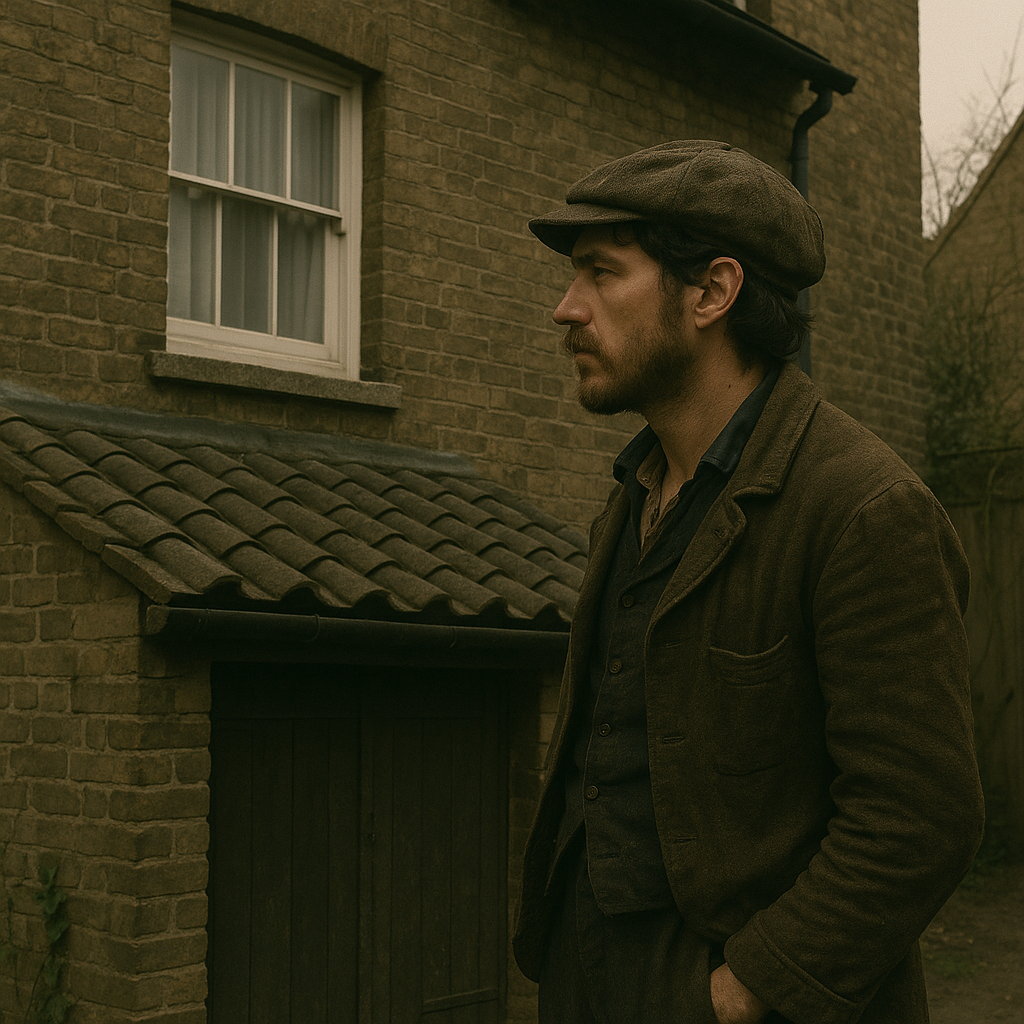
I left the house a little after eight o’clock this morning in the character of a groom out of work. There is a wonderful sympathy and freemasonry among horsey men.
Be one of them, and you will know all that there is to know. I soon found Briony Lodge. It is a bijou villa, with a garden at the back, but built out in front right up to the road, two stories.
「今朝は|八時を|少し|過ぎたころ、|仕事に|あぶれた|馬丁に|変装して|家を|出たんだ。||馬を|扱う|連中の|間には、|不思議な|共感と|仲間|意識が|あるものだ。
彼らの|一人|なりきれば、|知るべきことは|すべて|わかる。||間もなく|<ブライオニー・ロッジ>を|見つけた。||小ぶりの|洒落た|屋敷で、|裏には|庭があるが、|正面は|道路|ギリギリに|建っている|二階建ての|建物だ」
Chubb lock to the door. Large sitting-room on the right side, well furnished, with long windows almost to the floor, and those preposterous English window fasteners which a child could open.
Behind there was nothing remarkable, save that the passage window could be reached from the top of the coach-house. I walked round it and examined it closely from every point of view, but without noting anything else of interest.
「ドアには|チャブ錠。||19世紀|イギリスで|有名だった|ピッキング|されにくい<チャブ>社の|錠前||
右手に|客間が|あって、|調度品は|ゆきとどき、|窓は|床|近くまで|のびる|長窓。||しかも、|子どもでも|開けられる|ばかげた|イギリス|式の|留め金が|ついている」
裏手には、|注目|すべきことは|何もなかった。||ただ、|廊下の|窓が、|馬車|置き場の|屋根から|届く|位置にある、|ということ|以外にはね。
僕は|そのまわりを|ぐるりと|歩き、|あらゆる|角度から|注意深く|調べたが、|他に|興味を|惹くものは|見つから|なかった」
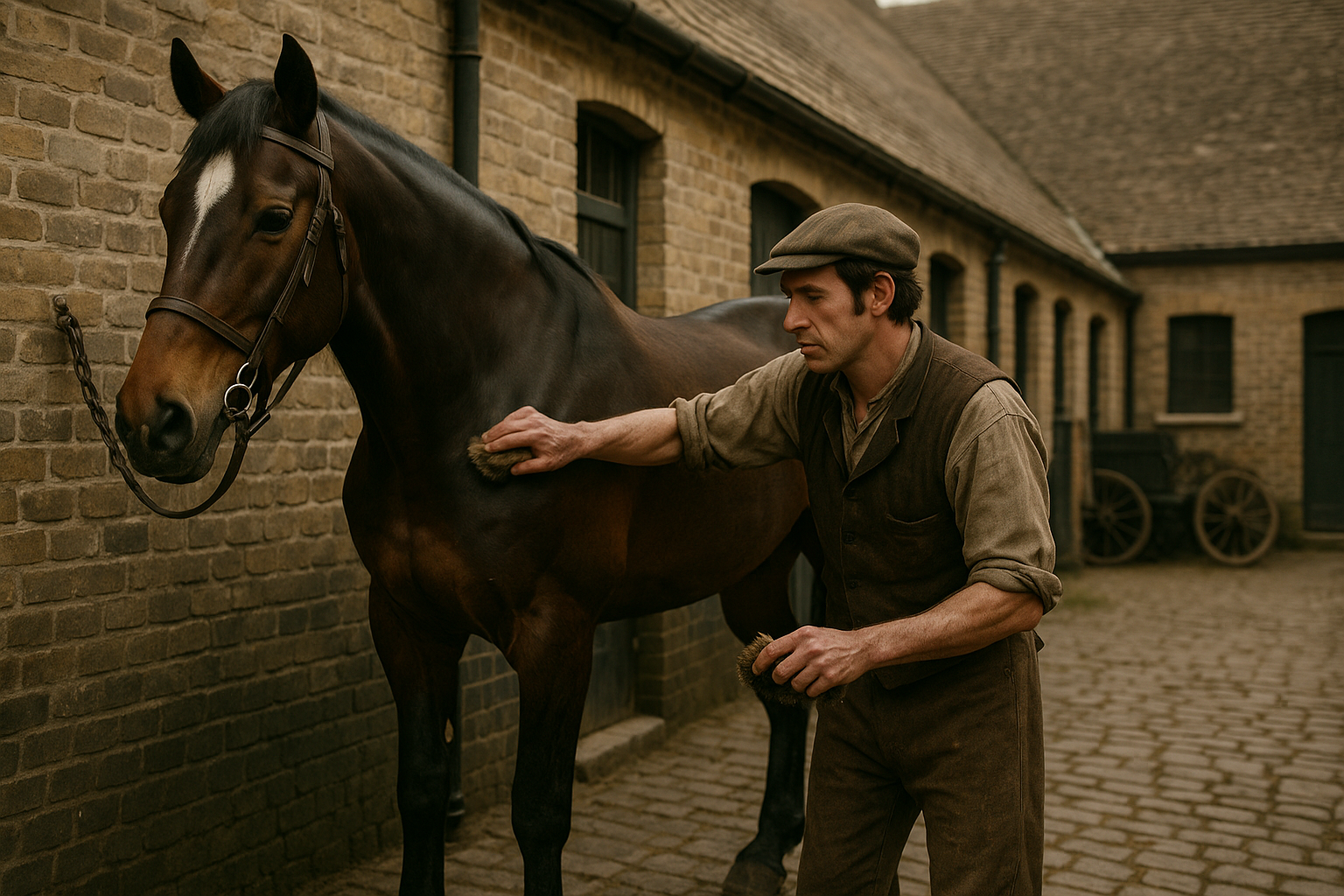
“I then lounged down the street and found, as I expected, that there was a mews in a lane which runs down by one wall of the garden.
I lent the ostlers a hand in rubbing down their horses, and received in exchange twopence, a glass of half-and-half, two fills of shag tobacco, and as much information as I could desire about Miss Adler, to say nothing of half a dozen other people in the neighbourhood in whom I was not in the least interested, but whose biographies I was compelled to listen to.”
「それから|僕は、|通りを|ぶらぶら|していると、|期待通り|庭の|一方の|壁に|沿って|降りたところに|馬車|置き場が|並んで|いるのを|見つけた。
私は、|馬丁たちの|馬の|手入れを|少し|手伝った。||その|報酬として|2ペンス|銀貨、|<ハーフ・アンド・ハーフ>||2種類の|ビールを|混ぜたもの||一杯、|刻み|煙草を|2回分、|そして|<ミス・アドラー>について|欲しいだけの|情報を|聞くことが|できたのさ。||そればかりか、|まったく|興味のない|六人ほどの|ご近所さんの|話や、|彼らの|身の上まで|いやいや|聞かされる|羽目にも|なったがね」

“And what of Irene Adler?” I asked.
「それで、|アイリーン・アドラーは|どうなんだ?」と|私は|たずねた。

“Oh, she has turned all the men’s heads down in that part. She is the daintiest thing under a bonnet on this planet. So say the Serpentine-mews, to a man. She lives quietly, sings at concerts, drives out at five every day, and returns at seven sharp for dinner.
Seldom goes out at other times, except when she sings.
「ああ、|あのあたりの|男たちは|みんな|彼女に|夢中らしい。||この世で|あれほど|愛らしい|女性はいない|とね。||<サーパンタイン>の|馬車|置き場の|連中は|口を|そろえて|そう|言っている。
彼女は|つつましく|暮らしているが、|歌手としての|顔も|持っている。||毎日|5時に|馬車を出し、|7時|きっかりに|夕食の|ために|帰宅する|そうだ。
彼女は|歌う|ときだけは|別にして、|普段、|そのほかの|時間に|出歩くことは|滅多にない」
Has only one male visitor, but a good deal of him.
He is dark, handsome, and dashing, never calls less than once a day, and often twice.
He is a Mr. Godfrey Norton, of the Inner Temple.
See the advantages of a cabman as a confidant.
They had driven him home a dozen times from Serpentine-mews, and knew all about him.
「男の|客は|一人だけで、|その|男は|ずいぶん|入りびたり。||色黒で、|きりっとして|精力的、|一日に|一度は|必ず|訪れ、|多いときは|二度も|やって来る。
名前は|<ゴドフリー・ノートン>といって、|<インナー・テンプル>||ロンドンに|実在する|法廷|弁護士を|養成する|伝統的な|職業|団体||の|所属だ。
馬曳きと|親しくなると、|こんな|利点が|あるんだ。||サーパンタインの|馬車|置き場から|彼を|送ったことが|何度もあると、|彼については|みんな|よく|知っていたよ」
When I had listened to all they had to tell, I began to walk up and down near Briony Lodge once more, and to think over my plan of campaign.
「彼らの|話しを|すべて|聞き終えると、|僕は|もう|一度|<ブライオニー・ロッジ>の|近くを|行ったり来たり|しながら、|作戦を|どう|進めるか|考えはじめた」
“This Godfrey Norton was evidently an important factor in the matter. He was a lawyer. That sounded ominous. What was the relation between them, and what the object of his repeated visits?
Was she his client, his friend, or his mistress?
If the former, she had probably transferred the photograph to his keeping.
If the latter, it was less likely.
「この|ゴドフリー・ノートンは、|明らかに|この件|において|重要な|要素だ。||彼は|弁護士で、|それは|不気味に|思えるんだ。
二人は|どういう|関係で、|彼が|くり返し|訪ねてくる|目的は|何なのか?||彼女は|彼の|依頼人か、|友人か、|あるいは|愛人なのか?||もし|依頼人の|場合なら|写真を|彼に|預けている|可能性が|高い。||もし|愛人なら、|その|可能性は|低いんだ」
On the issue of this question depended whether I should continue my work at Briony Lodge, or turn my attention to the gentleman’s chambers in the Temple.
It was a delicate point, and it widened the field of my inquiry.
I fear that I bore you with these details, but I have to let you see my little difficulties, if you are to understand the situation.”
この|問いの|答え|いかんで、|僕は|<ブライオニー・ロッジ>での|調査を|続けるべきか、|それとも|その|紳士の|<テンプル>の|部屋に|目を|向けるべきかが|決まる。
それは|微妙な|問題で、|僕の|調査|範囲を|広げることに|なってしまう。
こんな|細かい|話しを|すると、|君は|退屈|してしまうと|思うんだが、|状況を|理解して|もらうには、|僕が|直面|している|小さな|問題も|知っておいて|ほしいんだ」

“I am following you closely,” I answered.
「僕は|君の|話に|しっかり|ついて|いってるよ」と、|私は|答えた。

“I was still balancing the matter in my mind when a hansom cab drove up to Briony Lodge, and a gentleman sprang out.
He was a remarkably handsome man, dark, aquiline, and moustached—evidently the man of whom I had heard.
He appeared to be in a great hurry, shouted to the cabman to wait, and brushed past the maid who opened the door with the air of a man who was thoroughly at home.
「僕が|まだ、|その|問題を|心の|中で|天秤に|かけていると、|1台の|ハンサム・キャブ||二輪の|辻|馬車||が、|ブライオニー・ロッジに|乗りつけ、|一人の|紳士が|飛び降りた。||彼は|ひときわ|見た目の|よい|男で、|色は|浅黒く、|鷲鼻で、|口ひげを|たくわえていた。|明らかに|僕が|耳にしていた|その|人物だ。
彼は|ひどく|急いで|いるようで、|馬曳きに|待つように|怒鳴ると、|玄関を|あけた|メイドの|横を、|すっかり|馴染みの|家に|来たような|様子で|すり抜けて|いった」
“He was in the house about half an hour, and I could catch glimpses of him in the windows of the sitting-room, pacing up and down, talking excitedly, and waving his arms.
Of her I could see nothing.
Presently he emerged, looking even more flurried than before.
As he stepped up to the cab, he pulled a gold watch from his pocket and looked at it earnestly, ‘Drive like the devil,’ he shouted, ‘first to Gross & Hankey’s in Regent Street, and then to the Church of St. Monica in the Edgeware Road. Half a guinea if you do it in twenty minutes!’
「彼は|およそ|30分ほど|家の|中にいて、|僕は|広い|部屋の|窓ごしに、|彼の|姿を|ときおり|目にした。||歩き回り、|興奮した|ように|しゃべり、|両腕を|振っていた。||彼女の|姿は|まったく|見えなかった。
やがて、|彼は|さらに|うろたえた|様子で|出てきた。
辻|馬車に|近づきながら、|懐から|金|時計を|取り出し、|熱心に|見つめた。
「全速力で|飛ばせ!」と|彼は|叫んだ。
「まず|<リージェント・ストリート>||ロンドン|中心部の|実在する|大通り||の|<グロス・アンド・ハンキー>||架空の宝石商||へ。|それから|<エッジウェア>街道||ロンドン|中心部から|北西に|延びる|実在の|幹線|道路||の|<セント|モニカ>教会||架空の|教会||へ。|20分で|やってのけたら|ハーフ|ギニー||慣用的な|料金|表現で|約10シリング|6ペンスに|相当||払うぞ!」
“Away they went, and I was just wondering whether I should not do well to follow them when up the lane came a neat little landau, the coachman with his coat only half-buttoned, and his tie under his ear, while all the tags of his harness were sticking out of the buckles.
It hadn’t pulled up before she shot out of the hall door and into it. I only caught a glimpse of her at the moment, but she was a lovely woman, with a face that a man might die for.
彼らが|行ってしまい、|僕は|あとを|追ったほうが|いいかと|考えていた。||そのとき|一台の|小ぎれいな|ランドー|馬車||折りたたみ|屋根つきの|四輪|馬車||が|通りに|やって来た。||馬曳きは|外套の|ボタンを|半分しか|留めず、|ネクタイは|耳の下に|ずれており、|馬具の|革ひもは|どれも|金具から|はみ出していた。
馬車が|止まらぬうちに、|彼女が|玄関の|戸口から|飛び出して|その中に|乗りこんだ。|そのとき|ちらりとしか|見えなかったが、|彼女は|美しい|女性で、|その|顔は|男が|命を|投げ出しても|よいと|思うほどだった。
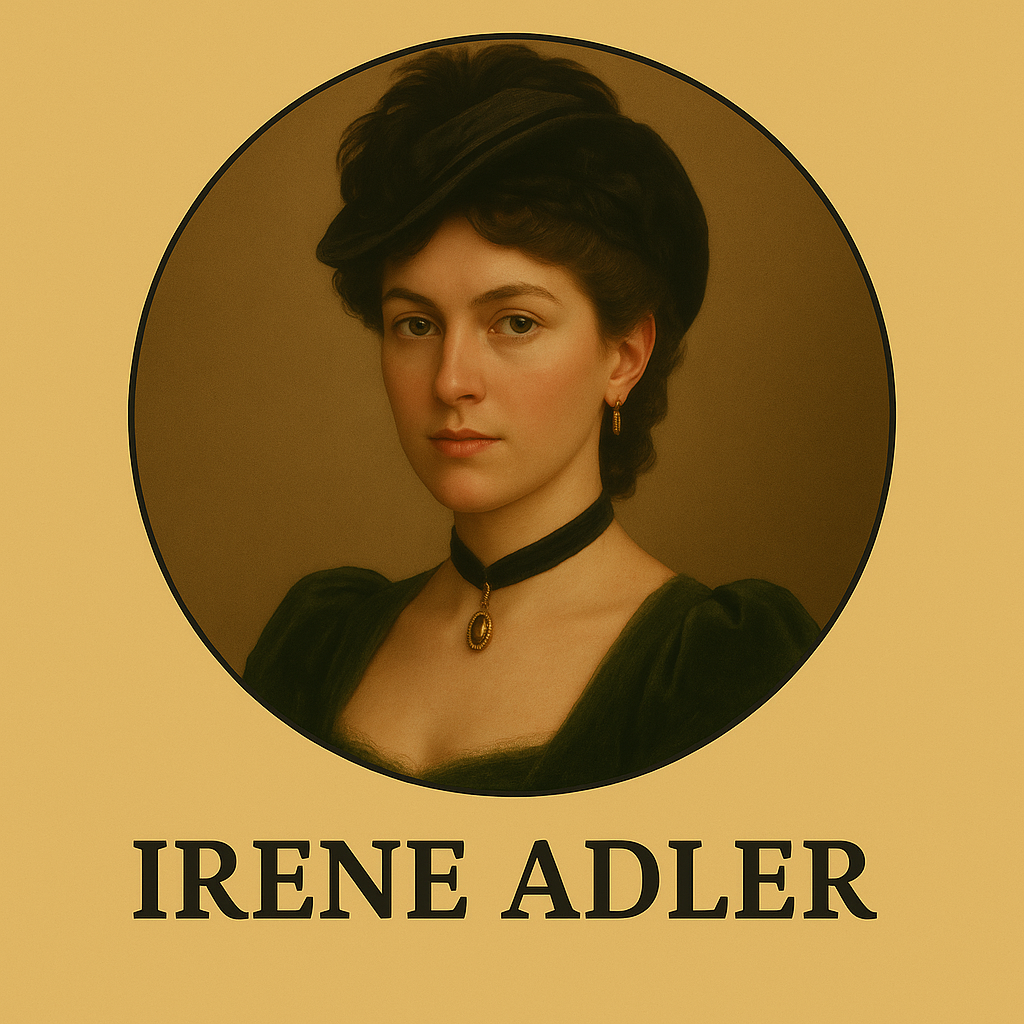
“‘The Church of St. Monica, John,’ she cried, ‘and half a sovereign if you reach it in twenty minutes.’
「<セント・モニカ>教会よ、|ジョン!」と、|彼女は|叫んだ。||「20分で|着いたら、|<ハーフ・ソヴリン>||実際に|流通|していた|小額|金貨で、10シリング||を|あげるわ!」

“This was quite too good to lose, Watson. I was just balancing whether I should run for it, or whether I should perch behind her landau when a cab came through the street.
The driver looked twice at such a shabby fare, but I jumped in before he could object. ‘The Church of St. Monica,’ said I, ‘and half a sovereign if you reach it in twenty minutes.’ It was twenty-five minutes to twelve, and of course it was clear enough what was in the wind.
「これは|見逃すわけには|いかないよ、|ワトスン。||僕は|走って|追いかけるか、|それとも|彼女の|ランドー|馬車の|うしろに|飛び乗るか、|ちょうど|迷っていた|ところに、|一台の|辻|馬車が|通り|かかったんだ。||馬曳きは、|みすぼらしい|客に|二度も|目を|やったが、|僕は|文句を|言わせる|前に|飛び乗った。
『セント・モニカ教会だ。|20分で|着けば、|ハーフ・ソヴリン|払うぞ』と|僕は|言った。||そのとき|時計は|11時35分で、|もちろん|何が|起ころうと|しているかは|明らかだった」
“My cabby drove fast. I don’t think I ever drove faster, but the others were there before us.
The cab and the landau with their steaming horses were in front of the door when I arrived. I paid the man and hurried into the church.
There was not a soul there save the two whom I had followed and a surpliced clergyman, who seemed to be expostulating with them.
僕の|辻|馬車は|ものすごい|スピードで|走ったよ。||これまでに|なかった|速さだと|思う。|だが、|相手のほうが|先に|着いていた。
僕が|到着|したときには、|まだ|息を|荒げている|馬を|つないだ|辻|馬車と|ランドー|馬車が、|すでに|玄関|前に|止まっていた。
僕は|馬曳きに|金を|払い、|急いで|教会に|入った。
中には、|あとを|追った|二人と、|白衣を|まとった|牧師が|いるだけで、|その|牧師は|二人に|何やら|抗議している|ようだった。
They were all three standing in a knot in front of the altar.
I lounged up the side aisle like any other idler who has dropped into a church.
Suddenly, to my surprise, the three at the altar faced round to me, and Godfrey Norton came running as hard as he could towards me.
三人は|祭壇の|前に|ひとかたまりに|なって|立っていた。|
僕は、|ふらりと|教会に|立ち寄った|ただの|暇な|人間の|ように、|脇の|通路を|のんびり|歩いていった。
すると|意外なことに、|祭壇の|三人が|そろって|こちらを|振り向き、|<ゴドフリー・ノートン>が、|全速力で|僕の方へ|走ってきた」
“‘Thank God,’ he cried. ‘You’ll do. Come! Come!’
“‘What then?’ I asked.
“‘Come, man, come, only three minutes, or it won’t be legal.’
『ありがたい!』と|彼は|叫んだ。
『君で|十分だ。|さあ、|来てくれ、|来てくれ!』
『何ですか?』と|僕は|たずねた。
『さあ、|頼むから|早く|来てくれ。||あと|三分しか|ない。||でないと|法的に|有効では|なくなって|しまう。』
“I was half-dragged up to the altar, and before I knew where I was I found myself mumbling responses which were whispered in my ear, and vouching for things of which I knew nothing, and generally assisting in the secure tying up of Irene Adler, spinster, to Godfrey Norton, bachelor.
It was all done in an instant, and there was the gentleman thanking me on the one side and the lady on the other, while the clergyman beamed on me in front.
僕は|半ば|引きずられる|ようにして|祭壇まで|連れて|行かれ、|気がつくと|耳元で|ささやかれる|言葉を|ボソボソと|繰り返し、|何も|知らない|ことについて|保証をし、|結局は|アイリーン・アドラー|という|独身|女性と|ゴドフリー・ノートン|という|独身|男性との|結婚を|しっかり|取り結ぶ|手助けを|したのさ。
すべて|一瞬で|終わって、|片方では|紳士が|僕に|礼を|言い、|もう|片方では|淑女が|礼を|述べ、|正面では|牧師が|にこにこと|僕に|微笑みを|投げかけていた」

It was the most preposterous position in which I ever found myself in my life, and it was the thought of it that started me laughing just now.
It seems that there had been some informality about their license, that the clergyman absolutely refused to marry them without a witness of some sort, and that my lucky appearance saved the bridegroom from having to sally out into the streets in search of a best man.
The bride gave me a sovereign, and I mean to wear it on my watch chain in memory of the occasion.”
「生涯で、|これほど|ばかげた|立場に|置かれたことは|なかったし、|そのことを|思い出したから、|さっき|思わず|笑って|しまったんだ。
どうやら|二人の|結婚|許可証には|手続きの|不備が|あったらしく、|牧師は|証人なしでは|絶対に|式を|執り行うことは|できないと|言い張った。|そこへ|運よく|僕が|現れた|おかげで、|花婿は|立会人を|探すために|街に|飛び出す|必要が|なくなったのだ。
花嫁は|僕に|ソヴリン|金貨を|一枚くれたよ。|僕は|この|出来事の|記念に、|それを|懐中時計の|鎖に|つけておく|つもりだ」

“This is a very unexpected turn of affairs,” said I; “and what then?”
「これは|まったく|思いがけない|事態に|なったね」|と、|私は|言った。||「それから|どうなった?」

“Well, I found my plans very seriously menaced.
It looked as if the pair might take an immediate departure, and so necessitate very prompt and energetic measures on my part.
At the church door, however, they separated, he driving back to the Temple, and she to her own house.
‘I shall drive out in the park at five as usual,’ she said as she left him. I heard no more. They drove away in different directions, and I went off to make my own arrangements.”
「そこで、|私は|自分の|計画が|重大な|危険に|晒されて|いることに|気付いた。||ふたりは|すぐにでも|出発|するかに|見えたので、|こちらも|即座に|強引な|手段を|とらねば|ならない|ところだ。
しかし、|教会の|扉の|ところで|二人は|別れ、|彼は|馬車で|テンプルに|戻り、|彼女は|自分の|家へと|帰った。
『いつもどおり|五時には|公園へ|馬車で|出かけますわ』と、|彼女は|彼と|別れるときに|言った。||それ以上は|聞こえなかった。
二人は|違う|方向へと|馬車を|走らせた。
僕は|自分の|計画の|準備のために|出かけた」

“Which are?”
「どこへ?」

“Some cold beef and a glass of beer,” he answered, ringing the bell.
“I have been too busy to think of food, and I am likely to be busier still this evening. By the way, Doctor, I shall want your co-operation.”
「冷めた|ロースト|ビーフと|ビールを|一杯」と、|彼は|答えて、|ベルを|鳴らした。
「食事のことを|考える|暇もないほど|忙しかった。||だが、|今夜は|もっと|忙しく|なるだろう。
ところで|ドクター、|君に|協力して|欲しいんだ」

“I shall be delighted.”
「喜んで|引き受けよう」

“You don’t mind breaking the law?”
「法律を|破ることに|躊躇|はないかい?」

“Not in the least.”
「まあ、かまわないさ」

“Nor running a chance of arrest?”
「逮捕される|かもしれないよ?」

“Not in a good cause.”
「そこに|大義が|あるのなら|かまわない」

“Oh, the cause is excellent!”
「ああ、|立派な|大義になるさ!」

“Then I am your man.”
「では|君の|力になるよ」

“I was sure that I might rely on you.”
「君は|頼りになると|思ってたよ」

“But what is it you wish?”
「だが|一体|君は|僕に|何をして|欲しいんだ?」

“When Mrs. Turner has brought in the tray I will make it clear to you. Now,” he said as he turned hungrily on the simple fare that our landlady had provided, “I must discuss it while I eat, for I have not much time. It is nearly five now. In two hours we must be on the scene of action. Miss Irene, or Madame, rather, returns from her drive at seven. We must be at Briony Lodge to meet her.”
「ミセス・ターナーが|料理を|持ってきたら、|きみに|はっきり|説明しよう。|さて」と、彼は|女|主人が|用意した|質素な|料理に、|さっさと|手を|伸ばしながら|言った。
「食べながら|話さないと|いけない。|時間が|ないのだ。||もう|5時に|近い。||二時間後には|現場に|行く|必要がある。||<ミス・アイリーン>、|いや|むしろ|<マダム・アイリーン>と|呼ぶべきか。||彼女は|7時に|馬車で|家に|帰ってくる。||われわれは|その|時刻に|間に合うよう、|ブライオニー・ロッジに|いなければ|ならない」

“And what then?”
「それで、|どうなるんだい?」

“You must leave that to me. I have already arranged what is to occur. There is only one point on which I must insist. You must not interfere, come what may. You understand?”
「それは|僕に|まかせてくれ。||何が|起こるかは、|すでに|準備してある。|ただし、|ひとつだけ|強く|言っておく|ことがある。||どんなことが|あっても、|君は|決して|口を|出しては|いけない。||わかったかい?」

“I am to be neutral?”
「僕は|ただ|見てれば|いいのか?」

“To do nothing whatever. There will probably be some small unpleasantness. Do not join in it.
It will end in my being conveyed into the house. Four or five minutes afterwards the sitting-room window will open. You are to station yourself close to that open window.”
「一切|何も|しなくていい。||ちょっと|厄介な|ことになる|かもしれない。|それに|手を出しては|ならない。|最後は|僕が|部屋の|中に|運び込まれる|ことになる。||その|4、5分|あとに|客間の|窓が|開く。|君は|その|開いた|窓の|傍らで|待機してくれ」

“Yes.”
「わかった」

“You are to watch me, for I will be visible to you.”
「君は|僕を|見ていればいい。||僕の|姿は|君の方から|見えるはずだ」

“Yes.”
「ああ」

“And when I raise my hand—so—you will throw into the room what I give you to throw, and will, at the same time, raise the cry of fire. You quite follow me?”
「それから|僕が|こうやって|手を|上げたら、|君は|僕が|渡したものを|部屋に|投げ入れて、|同時に|『火事だ!』と|叫ぶんだ。||いいかい?」

“Entirely.”
「大丈夫だ」

“It is nothing very formidable,” he said, taking a long cigar-shaped roll from his pocket.
“It is an ordinary plumber’s smoke-rocket, fitted with a cap at either end to make it self-lighting. Your task is confined to that. When you raise your cry of fire, it will be taken up by quite a number of people. You may then walk to the end of the street, and I will rejoin you in ten minutes. I hope that I have made myself clear?”
「たいした|ことではないよ」と、|彼は|言いながら、|ポケットから|葉巻のような|長い|巻きものを|取り出した。
ただの|水道|工事で|使う|発煙筒だ。||両端の|キャップを|擦れば、|勝手に|火が|つくように|なっている。||君の|役目は|それだけだ。||火事だと|叫べば、|大勢が|すぐに|大騒ぎ|してくれる。||そのあとで、|君は|通りの|端まで|歩いて|行けばいい。||僕は|10分後に|合流する。||わかりやすく|説明|できたかな?」

“I am to remain neutral, to get near the window, to watch you, and at the signal to throw in this object, then to raise the cry of fire, and to wait you at the corner of the street.”
「僕は|窓の|近くで|君を|見ているだけで|何も|しないこと。||君の|合図が|あったら|この|発煙筒を|投げ入れ、|そのあと|火事だと|叫び、|通りの|端で|君を|待つことだ」

“Precisely.”
「そのとおり」

“Then you may entirely rely on me.”
「それなら|安心して|僕に|任せてくれよ」

“That is excellent. I think, perhaps, it is almost time that I prepare for the new role I have to play.”
「いいね。||では、|そろそろ|僕も、|新しい|仮の|姿の|準備を|始めよう」
He disappeared into his bedroom and returned in a few minutes in the character of an amiable and simple-minded Nonconformist clergyman.
彼は 寝室に|消えて、数分後に|戻ってきた。
親しみやすい|素直な|性格の|非|国教会||<イングランド>国教会に|属さない|<プロテスタント>の|総称||の|牧師に|変装|していた。
His broad black hat, his baggy trousers, his white tie, his sympathetic smile, and general look of peering and benevolent curiosity were such as Mr. John Hare alone could have equalled.
It was not merely that Holmes changed his costume. His expression, his manner, his very soul seemed to vary with every fresh part that he assumed.
The stage lost a fine actor, even as science lost an acute reasoner, when he became a specialist in crime.
つばの|広い|黒い|帽子、|だぶだぶの|ズボン、|白い|ネクタイ、|人懐っこい|微笑み、|そして|寄り添うような|善意の|好奇心に|満ちた|全体の|雰囲気は、|ただ|<ジョン・ヘア>||親しみやすい|牧師や|善良そうな|紳士を|演じる|イギリスの|舞台|俳優||だけが|匹敵|できるほどの|ものだった。
ホームズが|単に|衣装を|替えるという|だけでは|なかった。||彼の|表情も、|態度も、|魂|そのものまでが、|新しい|役を|演じるたびに|変わるように|思われた。
彼が|犯罪の|専門家に|なったとき、|舞台|芸術は|一流の|俳優を|失い、|ちょうど|科学界が|鋭い|理論家を|失った|ような|ものだった」
It was a quarter past six when we left Baker Street, and it still wanted ten minutes to the hour when we found ourselves in Serpentine Avenue.
It was already dusk, and the lamps were just being lighted as we paced up and down in front of Briony Lodge, waiting for the coming of its occupant.
ベーカー街を|出たのは|6時|15分で、|サーペンタイン|アベニューに|着いたときは、|まだ|7時の|10分前|だった。
すでに|あたりは|薄暗く、|街灯が|ちょうど|灯され|始めていた。||我々は|ブライオニー・ロッジの|前を|行ったり来たり|しながら、|その|住人の|帰りを|待っていた。
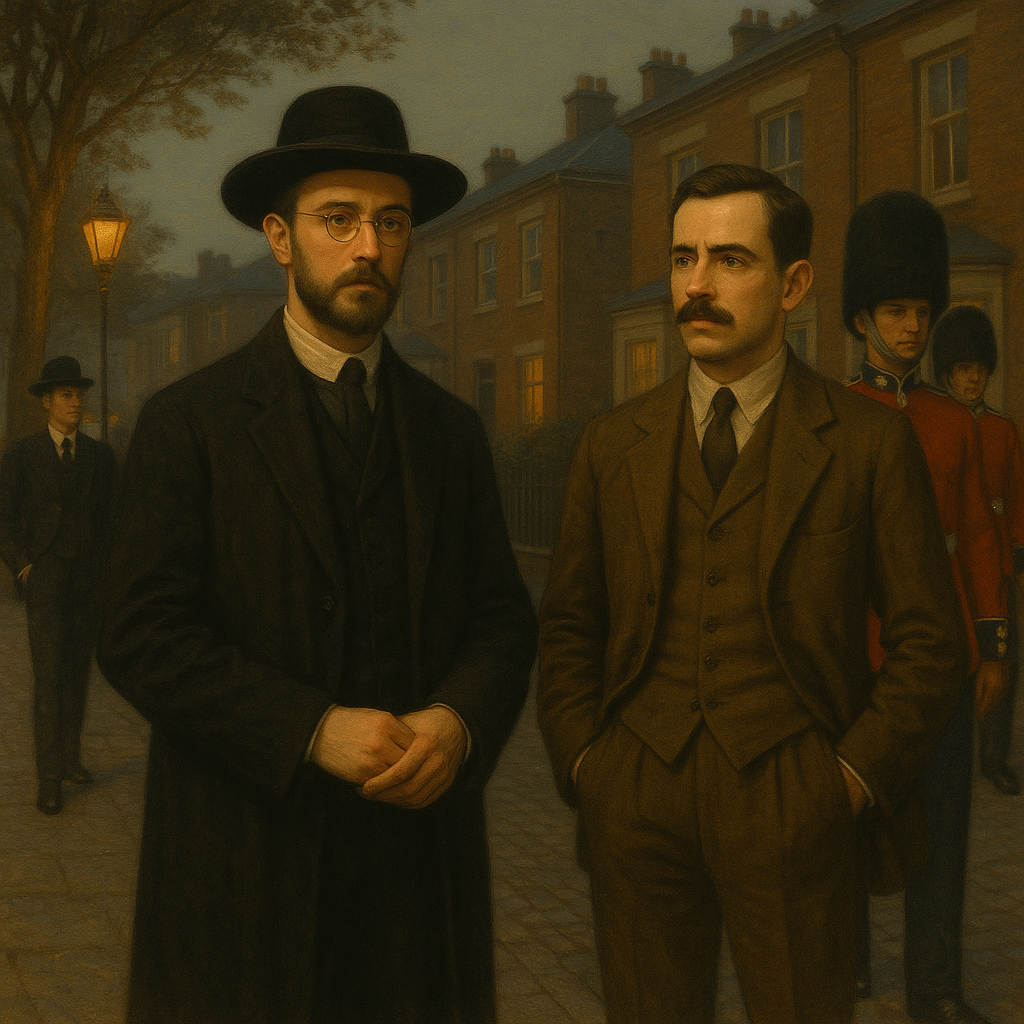
The house was just such as I had pictured it from Sherlock Holmes’ succinct description, but the locality appeared to be less private than I expected.
On the contrary, for a small street in a quiet neighbourhood, it was remarkably animated. There was a group of shabbily dressed men smoking and laughing in a corner, a scissors-grinder with his wheel, two guardsmen who were flirting with a nurse-girl, and several well-dressed young men who were lounging up and down with cigars in their mouths.
その|家は、|ホームズの|簡単な|説明から|私が|思っていた|とおりの|ものだったが、|そこは|思ったより|人通りの|多い|場所だった。
それどころか、|静かな|住宅街の|小さな|通りにしては、|驚くほど|にぎやかだった。||街角では|みすぼらしい|身なりの|男たちが|煙草を|ふかして|笑い、|砥石を|持った|刃物|職人が|いて、|二人の|近衛兵は|子守の|娘に|言い寄り、|数人の|洒落た|身なりの|若者たちは|葉巻を|くわえて|通りを|ぶらついていた」

“You see,” remarked Holmes, as we paced to and fro in front of the house, “this marriage rather simplifies matters.
The photograph becomes a double-edged weapon now.
The chances are that she would be as averse to its being seen by Mr. Godfrey Norton, as our client is to its coming to the eyes of his princess.
Now the question is, Where are we to find the photograph?”
「いいかい」
家の|前を|行ったり|来たり|しながら|ホームズが|言った。
「この|結婚で、|むしろ|事態は|単純に|なったんだよ。||写真は、|今や|<諸刃の|剣>となった。||おそらく|彼女も、|その|写真を|ゴドフリー・ノートンに|見られるのを、|我々の|依頼人が|花嫁に|見られるのを|嫌がって|いるのと|同じくらい|嫌がるだろう。
さて|問題は、|その|写真を|どこで|探せばよいのか、|ということだ」

“Where, indeed?”
「本当に|どこだろう?」

“It is most unlikely that she carries it about with her. It is cabinet size. Too large for easy concealment about a woman’s dress.
She knows that the King is capable of having her waylaid and searched. Two attempts of the sort have already been made. We may take it, then, that she does not carry it about with her.”
「彼女が|あの|写真を|持ち歩いて|いるとは、|まず|考え|られない。||キャビネ判|だからね。||女性の|服に|手軽に|隠すには|大きすぎる。||彼女は、|国王が|待ち伏せして|身につけている|物は|全て|調べられると|わかって|いるはずだ。||実際、|すでに|二回、|その手のことを|実行|している。||したがって、|彼女は|あの|写真を|持ち歩いては|いないと|見てよいだろう」

“Where, then?”
「では、どこだ?」

“Her banker or her lawyer. There is that double possibility. But I am inclined to think neither. Women are naturally secretive, and they like to do their own secreting. Why should she hand it over to anyone else?
She could trust her own guardianship, but she could not tell what indirect or political influence might be brought to bear upon a business man.
Besides, remember that she had resolved to use it within a few days. It must be where she can lay her hands upon it. It must be in her own house.”
「銀行か、|弁護士か。||その|二つの|可能性は|ある。||だが|私は、|どちらでも|ないと|思う。
女性|というものは、||生まれつき|秘密好きで、|自分の|秘密は|自分で|隠したがる|ものだ。||それなのに、|どうして|わざわざ|他人に|預ける|だろうか?
彼女は、|自分で|管理|していれば|安心だと|考えた|はずだ。||なぜなら、|銀行家や|弁護士には、|どんな|周りからの|圧力や|政治的な|干渉が|加わるのか|予測|できないからね。
それに、|彼女は|数日|以内に|その|写真を|使おうと|決めていた|ことを|思い出して|欲しい。||ならば、|すぐ|手に|取れるところに|置いてある|はずだ。||つまり、|彼女|自身の|家に|あるに|ちがいない」

“But it has twice been burgled.”
「しかし、|その家には、|二回も|押し行って|探したんだよ」

“Pshaw! They did not know how to look.”
「ふん!|| 奴らは|探し方が|下手だったのさ」

“But how will you look?”
「でも、|君は|どうやって|探すつもりだ?」

“I will not look.”
「探さないよ」

“What then?”
「どういうことさ?」

“I will get her to show me.”
「彼女に|教えてもらう|つもりだ」

“But she will refuse.”
「いや、|彼女は|断るだろう」

“She will not be able to. But I hear the rumble of wheels. It is her carriage. Now carry out my orders to the letter.”
「彼女は|断れないよ。||だが、|車輪の|響きが|聞こえる。||あれは|彼女の|馬車だ。||さあ、|私が|言ったとおり|一字|一句|間違えずに|実行|してくれ」
As he spoke the gleam of the sidelights of a carriage came round the curve of the avenue.
It was a smart little landau which rattled up to the door of Briony Lodge.
As it pulled up, one of the loafing men at the corner dashed forward to open the door in the hope of earning a copper, but was elbowed away by another loafer, who had rushed up with the same intention.
彼が|そう|言ったとき、|通りの|曲がり角から
馬車の|ランプの|光が|差してきた。||それは|洒落た|小型の|ランドー|馬車で、|ガタガタと|音を|立てながら、|ブライオニー・ロッジの|玄関に|乗りつけた。
馬車が|止まると、|角で|ぶらついていた|男の|一人が、|小銭を|稼ごうと、|ドアを|開けに|飛び出した。||だが|同じ|目当てで|駆け寄った|別の|男に、|肘で|押しのけられて|しまった。
A fierce quarrel broke out, which was increased by the two guardsmen, who took sides with one of the loungers, and by the scissors-grinder, who was equally hot upon the other side.
A blow was struck, and in an instant the lady, who had stepped from her carriage, was the centre of a little knot of flushed and struggling men, who struck savagely at each other with their fists and sticks.
Holmes dashed into the crowd to protect the lady; but, just as he reached her, he gave a cry and dropped to the ground, with the blood running freely down his face.
激しい|口論が|起こり、|それに|拍車を|かけたのは|二人の|近衛兵が|片方の|男に|ついたためで、|さらに|刃物|職人が|もう|片方に|同じくらいの|勢いで|加わった|ためであった。
殴り合いが|始まった。||馬車から|降りたばかりの|婦人は、|たちまち|真っ赤な|顔をした|男たちの|小さな|人だかりの|真ん中に|巻き込まれた。||男たちは|拳や|杖で|互いに|激しい|殴り合いに|なっていた。
ホームズは|婦人を|守ろうとして、|人だかりに|飛び込んだ。||だが、|ちょうど|彼女に|たどり着いた|そのとき、|彼は|叫び声を|あげて|地面に|倒れ、|顔には|血が|どっと|流れ落ちた。
At his fall the guardsmen took to their heels in one direction and the loungers in the other, while a number of better dressed people, who had watched the scuffle without taking part in it, crowded in to help the lady and to attend to the injured man.
Irene Adler, as I will still call her, had hurried up the steps; but she stood at the top with her superb figure outlined against the lights of the hall, looking back into the street.
ホームズが|倒れると、|近衛兵は|一方へ、|男たちは|反対|方向へと|逃げ去った。||そのあいだ、|これまで|騒ぎを|見物|していただけで、|手を|出さなかった|きちんとした|服装の|人々が、|大勢で|婦人を|助け、|負傷した|男を|介抱|しようと|群がってきた。
ここでは|旧姓の|アイリーン・アドラーと|呼ぶことにするが、|彼女は|入口の|階段を|急いで|上った。||しかし、|階段の|上に|立ち止まり、|玄関|ホールの|明かりを|背にして|通りを|振り返ると、|その|見事な|姿が|現れた

“Is the poor gentleman much hurt?” she asked.
「お気の毒な|紳士は、|ひどい|怪我を|されて|いるのですか?」と、|彼女は|たずねた。
“He is dead,” cried several voices.
“No, no, there’s life in him!” shouted another.
“But he’ll be gone before you can get him to hospital.”
“He’s a brave fellow,” said a woman.
“They would have had the lady’s purse and watch if it hadn’t been for him. They were a gang, and a rough one, too. Ah, he’s breathing now.”
“He can’t lie in the street. May we bring him in, marm?”
「死んだぞ!」と、|何人もの|声が|叫んだ。
「いや|いや、|まだ|息が|ある!||だが|病院へ|運ぶ前に、|死んでしまうぞ!」と、|別の|声が|叫んだ。
「勇敢な|人だわ。||あの方が|いなければ、|婦人は|財布と|時計を|奪われて|いたでしょう。||あれは|一味で、|しかも|荒っぽい|連中|だったのよ。||あっ、|いま|息を|してるわ」と、|女の声が|言った。
彼を|道路に|寝かせて|置くわけに|行きません。||中へ|運ばせて|いただけますか、|おかみさん?」

“Surely. Bring him into the sitting-room. There is a comfortable sofa. This way, please!”
「もちろん。||彼を|客間へ|運んで|ください。||楽な|ソファが|あります。||こちらへ、|どうぞ!」
Slowly and solemnly he was borne into Briony Lodge and laid out in the principal room, while I still observed the proceedings from my post by the window.
The lamps had been lit, but the blinds had not been drawn, so that I could see Holmes as he lay upon the couch.
「ゆっくりと|ものものしく|彼は|ブライオニー・ロッジへ|運ばれ、|客間に|寝かされた。||その間も|私は|窓ぎわの|持ち場から|事の|成りゆきを|見守っていた。|ランプに|火が|ともされたが、|ブラインドは|おろされず、|私は|ソファに|横たわる|ホームズの|姿を|見てとることが|できた」
I do not know whether he was seized with compunction at that moment for the part he was playing, but I know that I never felt more heartily ashamed of myself in my life than when I saw the beautiful creature against whom I was conspiring, or the grace and kindliness with which she waited upon the injured man.
そのとき|彼が|自分の|演じている|役まわりに|良心の|呵責を|おぼえたかは、|私には|わからない。||だが、|私自身の|人生で、|これほど|心から|自分を|恥ずかしいと|思ったことは|なかった。||それは|自分が|たくらんでいる|相手の|美しい|女性の|姿を|目にしたとき、|そして|けが人の|世話をする|彼女の|奥ゆかしさと|親切さを|見たときの|ことである」
And yet it would be the blackest treachery to Holmes to draw back now from the part which he had intrusted to me.
I hardened my heart, and took the smoke-rocket from under my ulster. After all, I thought, we are not injuring her. We are but preventing her from injuring another.
それでも、|いまさら|彼に|頼まれた|役目を|引き下がるのは、|ホームズに|対する|最悪|裏切りに|なるだろう。
私は|心を|固くして、|<アルスター・外套>||長く|ゆったりした|ベルト|付きの|男性用|オーバー||の|下から|発煙筒を|取り出した。||結局の|ところ、|彼女に|害を|与える|わけではない。||ただ、|ほかの人に|害を|与えるのを|防ごうと|しているだけだ|と、|私は|思った」
Holmes had sat up upon the couch, and I saw him motion like a man who is in need of air. A maid rushed across and threw open the window. At the same instant I saw him raise his hand and at the signal I tossed my rocket into the room with a cry of “Fire!”
The word was no sooner out of my mouth than the whole crowd of spectators, well dressed and ill—gentlemen, ostlers, and servant maids—joined in a general shriek of “Fire!”
「ホームズが|ソファの|上で|身を|起こし、|息が|つまっている|人のように|手ぶりを|したのが|見えた。||メイドが|あわてて|駆け寄り、|窓を|あけ放った。||そのとたん、|ホームズが|手を|あげるのを|見て、|合図と|知った|私は、|『火事だ!』と|叫びながら、|発煙筒を|部屋の|中へと|投げこんだ。
私の|口から|その|言葉が|出るやいなや、|見物|していた|群衆が|こぞって|『火事だ!』と|叫びたてた。||そこには|身なりの|立派な|者も|みすぼらしい|者も、|紳士も|馬丁も|女中たちも|まじっていた。
Thick clouds of smoke curled through the room and out at the open window.
I caught a glimpse of rushing figures, and a moment later the voice of Holmes from within assuring them that it was a false alarm.
Slipping through the shouting crowd I made my way to the corner of the street, and in ten minutes was rejoiced to find my friend’s arm in mine, and to get away from the scene of uproar.
もうもうとした|煙の|雲が、|部屋じゅうに|うずまきながら|広がり、|あいた|窓から|外へと|流れ出した。
慌て|ふためいて|走る|人々の|姿が|ちらりと|見えた。|その|すぐ|後に、|中から|ホームズの|声が|ひびき、|それは|誤報だと|人々を|安心|させていた。
わめきたてる|群衆の|間を|すり抜けて、|私は|通りの|角まで|たどりついた。|そして|十分|ほどして、|ホームズが|私の|腕を|取って|くれたので、|その|騒がしい|場所から|抜け出すことが|できたのを|うれしく|思った。
He walked swiftly and in silence for some few minutes until we had turned down one of the quiet streets which lead towards the Edgeware Road.
彼は|しばらくの|あいだ、|何も|言わずに|足早に|歩き続けた。|やがて|私たちは、|エッジウェア|街道へと|通じる|静かな|通りの|一つへ|折れていった。

“You did it very nicely, Doctor,” he remarked. “Nothing could have been better. It is all right.”
「うまく|やってくれたね、|ドクター」と、|彼は|言った。
「これ以上の|出来は|なかったよ。|万事|うまくいってる」

“You have the photograph?”
「写真は、手に|入れたのかい?」

“I know where it is.”
「どこに|あるかは|わかっている」

“And how did you find out?”
「どうやって|見つけたんだい?」

“She showed me, as I told you she would.”
「彼女が|僕に|見せてくれたよ。|君に|言った|とおりにね」

“I am still in the dark.”
「僕には|まだ|とんと|見当が|つかない」

“I do not wish to make a mystery,” said he, laughing. “The matter was perfectly simple. You, of course, saw that everyone in the street was an accomplice. They were all engaged for the evening.”
「「別に|もったいぶる|気はないよ」と、|彼は|笑いながら|言った。
「ことは|まったく|単純なんだ。||君も|気づいたろう。||通りに|いた|人間は|全員|共犯だ。||今夜のために|みんな|雇われて|いたのさ」

“I guessed as much.”
「そうだろうと|思っていたよ」

“Then, when the row broke out, I had a little moist red paint in the palm of my hand. I rushed forward, fell down, clapped my hand to my face, and became a piteous spectacle. It is an old trick.”
「それから、|騒ぎが|起きたときは、|手のひらに|少し|湿った|赤い|絵の具を|しのばせていた。||僕は|飛び出して|倒れこみ、|顔に|手を|当てて|哀れな|見せものに|なったんだ。||古い|手口さ」

“That also I could fathom.”
「それも|僕は|わかっていた」

“Then they carried me in. She was bound to have me in. What else could she do? And into her sitting-room, which was the very room which I suspected.
It lay between that and her bedroom, and I was determined to see which. They laid me on a couch, I motioned for air, they were compelled to open the window, and you had your chance.”
「それから、|彼らは|僕を|家の中へ|運びこんだ。||彼女は|僕を|入れざるを|えなかった。||他に|何か|できただろうか?
そして|客間だ。||それこそが|僕が|にらんでいた|部屋だった。||それは|寝室との|間に|あって、|僕は|どちらの|部屋か|見きわめる|つもりだった。||彼らは|私を|ソファに|寝かせ、|私は|息が|詰まるふりを|してみせた。||そうすれば|窓を|開けずには|いられない。||そこで|君の|出番に|なったわけだ」

“How did that help you?”
「何の|役に|立ったんだ?」

“It was all-important. When a woman thinks that her house is on fire, her instinct is at once to rush to the thing which she values most.
It is a perfectly overpowering impulse, and I have more than once taken advantage of it. In the case of the Darlington Substitution Scandal it was of use to me, and also in the Arnsworth Castle business.
「それが|何より|重要だった。||女|というものは、|自分の|家が|火事だと|思うと、|一番|大切に|している|物へと、|真っ先に|駆け寄るのが|本能だ。||それは|まったく|逆らえない|衝動的な|もので、|僕は|それを|何度も|利用|したことがある。||<ダーリントン>の|すり替え|事件でも、|それは|私の|役に立ったし、|<アーンズワース>城の|話でも|そうだった。』
||この|二つの|話は、|記録|されていない|架空の|事件||
A married woman grabs at her baby; an unmarried one reaches for her jewel-box. Now it was clear to me that our lady of to-day had nothing in the house more precious to her than what we are in quest of. She would rush to secure it.
The alarm of fire was admirably done. The smoke and shouting were enough to shake nerves of steel. She responded beautifully. The photograph is in a recess behind a sliding panel just above the right bell-pull. She was there in an instant, and I caught a glimpse of it as she half drew it out.
母親なら|赤ん坊を|抱き抱える。|独身の|女なら|宝石箱に|手を|伸ばす。||今日の|あの人に|とっては、|私たちが|探している|物こそが、|家じゅうで|何より|大事な|物に|ちがいないと|僕は|考えた。|彼女は|それを|守ろうと|駆け寄るに|決まっている。
「火事の|騒ぎは|見事だった。||煙と|叫び声とで、|鉄の|神経を|していても|動揺|するくらいだ。||彼女の|反応は、|驚くほど|見事だった。|写真は、|右手の|呼び鈴の|ひもから、|すぐ|上にある|引き戸の|裏に|隠してある。||僕は、|彼女が|たちまち|そこに|駆け寄って|半分|引き出す|ところを、|一瞬|見たんだ」
When I cried out that it was a false alarm, she replaced it, glanced at the rocket, rushed from the room, and I have not seen her since. I rose, and, making my excuses, escaped from the house.
I hesitated whether to attempt to secure the photograph at once; but the coachman had come in, and as he was watching me narrowly, it seemed safer to wait. A little over-precipitance may ruin all.”
「僕が|これは|誤報だと|叫ぶと、|彼女は|それを|元の|場所へ|戻し、|発煙筒を|ちらっと|見てから、|部屋を|飛び出して|いった。||それきり|彼女の|姿は|見ていない。||僕は|立ち上がり|一言|挨拶して|その家から|逃げ出した。
すぐにでも|写真を|盗んで|行くべきか|迷ったが、|馬曳きが|入ってきて|じっと|私を|見ていたので、|待ったほうが|安全だと|思った。||ちょっとした|軽率な|行動が、|すべてを|台無しに|するかも|しれないからだ」

“And now?” I asked.
「それで|今度は?」と、私は|聞いた。

“Our quest is practically finished. I shall call with the King to-morrow, and with you, if you care to come with us. We will be shown into the sitting-room to wait for the lady, but it is probable that when she comes she may find neither us nor the photograph. It might be a satisfaction to his Majesty to regain it with his own hands.”
「私たちの|探しものは、|じつのところ|もう|片づいたも|同然だ。||明日には|国王と|いっしょに|出向く|つもりだし、|君も|来たければ|同行|するといい。
私たちは|客間へ|通されて|彼女を|待つことに|なるだろう。||だが、|彼女が|やってくる|ときには、|私たちも|写真も|部屋から|消えている|つもりだ。||陛下は|ご自分の|手で|それを|取り戻す|ことが|できれば、|大いに|満足|されるだろう」

“And when will you call?”
「それで|いつ|行く|つもりなんだ?」

“At eight in the morning. She will not be up, so that we shall have a clear field.
Besides, we must be prompt, for this marriage may mean a complete change in her life and habits. I must wire to the King without delay.”
「朝の|8時だ。||彼女は|まだ|起きて|いないだろう。||だから|こちらも|思うままに|動ける。
それに|ぐずぐず|しても|いられない。||この|結婚で|彼女の|生活も|習慣も|すっかり|変わって|しまうかも|しれないからだ。||すぐに|国王へ|電報を|打たなければ|ならない」
We had reached Baker Street and had stopped at the door. He was searching his pockets for the key when someone passing said:
“Good-night, Mister Sherlock Holmes.”
我々は|ベイカー街に|戻り、|玄関の|前で|立ちどまった。||ホームズが|ポケットの|鍵を|探していると、|通りすがりの|誰かが|声をかけた。
『こんばんは、|ミスター・シャーロック=ホームズ。』
There were several people on the pavement at the time, but the greeting appeared to come from a slim youth in an ulster who had hurried by.
「そのとき|歩道には|人が|数人|いたが、|挨拶を|したのは|アルスター・外套を|着た|細身の|若者で、|あわただしく|通りすぎて|いったように|見えた」

“I’ve heard that voice before,” said Holmes, staring down the dimly lit street.
“Now, I wonder who the deuce that could have been.”
「今の|声は|前にも|聞いたことが|あるな」と、|ホームズは|うす暗い|街路を|見詰めて|言った。
「さて、|いったい|誰だったかな?」
第三章
I slept at Baker Street that night, and we were engaged upon our toast and coffee in the morning when the King of Bohemia rushed into the room.
「その夜は|ベイカー街に|泊まり、|あくる朝、|トーストと|コーヒーの|朝食を|とっていると、|ボヘミア|国王が|あわただしく|部屋へと|駆け込んできた」

“You have really got it!” he cried, grasping Sherlock Holmes by either shoulder and looking eagerly into his face.
「ほんとうに|手に|入れたのだな!」と|彼は|叫び、|シャーロック=ホームズの|両肩を|つかんで、|しきりに|その顔を|のぞきこんだ」

“Not yet.”
「いえ、まだです」

“But you have hopes?”
「だが、見込みは|あるのだな?」

“I have hopes.”
「もちろんです」

“Then, come. I am all impatience to be gone.”
「さあ、|行こう。||私は|向かいたくて|たまらないのだ」

“We must have a cab.”
「馬車を|呼ばなくては」

“No, my brougham is waiting.”
「いや、|私の|<ブロアム>|馬車が|待っている」

“Then that will simplify matters.”
“Irene Adler is married,” remarked Holmes.
「では、|それで|話は|簡単です」
We descended and started off once more for Briony Lodge.
我々は|下へ降りて、|再び|ブライオニー・ロッジへ|向かった。

“Irene Adler is married,” remarked Holmes.
「アイリーン・アドラーは|結婚|しました」と|ホームズは|伝えた。

“Married! When?”
「結婚だと!||いつ?」

“Yesterday.”
「昨日です」

“But to whom?”
「誰と?」

“To an English lawyer named Norton.”
「<ノートン>という|イギリスの|弁護士です」

“But she could not love him.”
「だが、彼女は|愛して|いないに|違いない」

“I am in hopes that she does.”
「私は、|彼女は|彼を|愛していると|思っています」

“And why in hopes?”
「なぜ、そう思う?」

“Because it would spare your Majesty all fear of future annoyance. If the lady loves her husband, she does not love your Majesty.
If she does not love your Majesty, there is no reason why she should interfere with your Majesty’s plan.”
「それは、|陛下に|将来の|頭痛の|種を|残さずに|すむからです。
彼女が|夫を|愛して|いるなら、|陛下を|愛して|いることには|なりません。
陛下を|愛して|いなければ、|陛下の|ご結婚を|邪魔する|理由が|ないからです」

“It is true. And yet—! Well! I wish she had been of my own station! What a queen she would have made!”
He relapsed into a moody silence, which was not broken until we drew up in Serpentine Avenue.
『そのとおりだ。|だが!||ああ、|彼女が|自分と|同じ|身分で|あったなら!||彼女は|どんなに|立派な|王妃に|なったことか!」
国王は|再び|ふさぎこんで|沈黙した。||サーペンタイン・アベニューに|馬車が|とまるまで、|その|沈黙が|破られる|ことは|なかった。
The door of Briony Lodge was open, and an elderly woman stood upon the steps. She watched us with a sardonic eye as we stepped from the brougham.
ブライオニー・ロッジの|扉は|開いていて、|年配の|女性が|階段に|立っていた。||我々が|ブロアム|馬車から|降りてきたとき、|彼女は|冷ややかな|眼差しで|こちらを|見ていた。

“Mr. Sherlock Holmes, I believe?” said she.
「シャーロック=ホームズ|さん、ですね?」と、彼女は|言った。

“I am Mr. Holmes,” answered my companion, looking at her with a questioning and rather startled gaze.
「私が|ホームズですが」|と、|我が友は|少し|問いかける|ような、|いささか|驚いた|眼差しで|彼女を|見つめながら|答えた。

“Indeed! My mistress told me that you were likely to call.
She left this morning with her husband by the 5:15 train from Charing Cross for the Continent.”
「本当に!|奥様は、|あなたが|おいでに|なるだろうと|おっしゃって|いました。||奥様は|今朝、|旦那様と|いっしょに、|<チャリング・クロス>|発|5時15分の|列車で|大陸へ|立たれました」
||<チャリング・クロス>は、|ヨーロッパ|大陸へ|渡るための|列車が|出る|ロンドンの|中心に|ある|鉄道|駅||

“What!” Sherlock Holmes staggered back, white with chagrin and surprise.
“Do you mean that she has left England?”
「なに!」|シャーロック=ホームズは、|驚きと|悔しさで|真っ青な|顔になり、|呆然と|立ち尽くした。
「彼女が|イングランドを|離れたと|そういう|意味ですか?」

“Never to return.”
「もう、|戻って|きませんよ」

“And the papers?” asked the King hoarsely.
「それで、|書類は|残って|いるのか?」と、国王は|尋ねた。

“All is lost.”
「何も|ありませんよ」

“We shall see.” He pushed past the servant and rushed into the drawing-room, followed by the King and myself.
「確かめて|やろう」
ホームズは|その|召使いを|押しのけて、|客間へと|駆け込んだ。||国王と|私も|それに|続いた。
The furniture was scattered about in every direction, with dismantled shelves and open drawers, as if the lady had hurriedly ransacked them before her flight. Holmes rushed at the bell-pull, he lady had hurriedly ransacked them a small sliding shutter, and, plunging in his hand, pulled out a photograph and a letter.
The photograph was of Irene Adler herself in evening dress, the letter was superscribed to “Sherlock Holmes, Esq. To be left till called for.” My friend tore it open, and we all three read it together. It was dated at midnight of the preceding night and ran in this way:
家具は|いたるところに|散らかり、|取りはずされた|棚や、|開いた|引き出しが|並んでいた。||まるで|女性が|急いで|逃げ出す|前に、|慌てて|ひっくり|返したかの|ようだった。||ホームズは|ベルの|ひもに|飛びつき、|小さな|引き戸を|引っ張って|開けると、|手を|突っこんで|写真と|手紙を|引っぱり出した。
写真は|イブニングドレスを|きた、|アイリーン・アドラー|自身の|ものであり、|手紙には|『シャーロック=ホームズ|様へ。|届ずに|そのまま|受け取りに|いらっしゃるまで。』と|宛名が|しるされていた。||ホームズは|それを|ビリっと|開き、|我々|3人で|一緒に|読み進んだ。||それは|前夜の|真夜中に|ひ日付があり、|次のように|書かれていた。
“MY DEAR MR. SHERLOCK HOLMES,—You really did it very well. You took me in completely. Until after the alarm of fire, I had not a suspicion.
「親愛なる|シャーロック=ホームズ様。
あなたは|実に|見事に|やって|のけました。|私は|すっかり|騙されました。||火事|騒ぎの|時は、|少しも|疑って|いませんでした」
But then, when I found how I had betrayed myself, I began to think. I had been warned against you months ago.
I had been told that, if the King employed an agent, it would certainly be you. And your address had been given me.
Yet, with all this, you made me reveal what you wanted to know.
Even after I became suspicious, I found it hard to think evil of such a dear, kind old clergyman.
しかし、|自分で|ボロを出したと|気づいてからは、|考え|はじめました。||数か月も|前から、|あなたに|用心せよと|警告を|受けて|いたのです。||国王が|誰かに|任せるなら、|それは|きっと|あなたに|違いないと|聞かされて|いました。||そして|あなたの|住所も|教えられて|いました。
けれども|全て|わかって|いたのに、|あなたは|知りたいことを、|私に|教えさせる|ことに|成功|したのです。||警戒|するように|なってからも、|あんなに|親切で|やさしい|牧師|さんに|悪意が|あると|見破ることは|困難でした。
But, you know, I have been trained as an actress myself. Male costume is nothing new to me. I often take advantage of the freedom which it gives.
I sent John, the coachman, to watch you, ran upstairs, got into my walking clothes, as I call them, and came down just as you departed
しかし|ご存じのとおり、|私|自身も|女優として|経験を|積んでいます。||男性の|姿を|することは、|私にとって|珍しい|ことでは|ありません。||私は|その|身軽な|恰好を|よく|利用|してきました。
私は|火事|騒ぎの後、|部屋の|中に|発煙筒が|あることに|気付きました。||そこで|馬曳きの|ジョンを|あなたの|見張りにつけ、|その間に|二階へ|駆け上がって、|いわゆる|外出着に|着がえ、|あなたが|立ち去るのと|入れ違いに|客間に|降りてきました。
“Well, I followed you to your door, and so made sure that I was really an object of interest to the celebrated Mr. Sherlock Holmes. Then I, rather imprudently, wished you good-night, and started for the Temple to see my husband.
その後、|私は|あなたの|家まで|あとをつけ、|自分が|本当に|名高い|ミスター・シャーロック=ホームズの|興味の|対象だと|確信|したのです。||それから、|私は|すこし|軽はずみにも、|あなたに|『おやすみなさい』と|声を|かけ、|<テンプル>へ|夫に|会いに|出かけました。
“We both thought the best resource was flight, when pursued by so formidable an antagonist; so you will find the nest empty when you call to-morrow.
As to the photograph, your client may rest in peace. I love and am loved by a better man than he. The King may do what he will without hindrance from one whom he has cruelly wronged.
I keep it only to safeguard myself, and to preserve a weapon which will always secure me from any steps which he might take in the future. I leave a photograph which he might care to possess; and I remain, dear Mr. Sherlock Holmes,
“Very truly yours,
“IRENE NORTON, née ADLER.”
私たちは|二人と、|あれほどの|手ごわい|相手に|追われては、|逃げるのが|最も|良い|手段だと|考えました。||ですから、|あなたが|明日|おいでに|なるときには、|すでに|私の|家は|空っぽに|なって|いるでしょう。
写真の|ことなら、|あなたの|依頼人は|安心して|よろしいのです。||私は|あの方より|もっと|良い|男性を|愛し、|その|人からも|愛されて|います。||国王は、|かつて|私に|むごい|仕打ちをした|者から、|何の|妨げも|受けずに|思いどおりに|なさることが|できるでしょう。
私は|それを|ただ|自分を|守るため、|そして|将来、|国王が|どんな|手段に|出ようとも、|つねに|自分を|まもる|武器として|残して|いるだけです。||国王が|お持ちに|なりたいと|思うかも|しれない|写真を|ここに|置いていきます。
最後に|親愛なる|シャーロック=ホームズ|様。
敬具
アイリーン・ノートン(旧姓|アドラー)

“What a woman—oh, what a woman!” cried the King of Bohemia, when we had all three read this epistle.
“Did I not tell you how quick and resolute she was? Would she not have made an admirable queen? Is it not a pity that she was not on my level?”
「なんという|女性だ、|ああ、なんという|女性だ!」と、|ボヘミア|国王は|叫んだ。||われわれ|三人が|その手紙を|読みおえたときの|ことだ。
「彼女が|いかに|機敏で、|いかに|断固とした|人物か、|私が|そう|言ったでは|ないか。||まことに|立派な|王妃に|なった|だろうに。|彼女が|私と|同じ|身分で|なかったのは、|なんと|惜しい|ことか!」

“From what I have seen of the lady, she seems, indeed, to be on a very different level to your Majesty,” said Holmes coldly. “I am sorry that I have not been able to bring your Majesty’s business to a more successful conclusion.”
「私が|見た|かぎりでは、|あの|女性は、|まさしく|陛下とは|まったく|ちがう|次元に|あるように|思われます」と、|ホームズは|冷然と|言った。
「陛下の|ご依頼を、|これ以上|うまく|まとめることが|できなかったのは、|まことに|遺憾です」

“On the contrary, my dear sir,” cried the King;
“nothing could be more successful. I know that her word is inviolate. The photograph is now as safe as if it were in the fire.”
「いや、|まったく|反対だよ、|ホームズ|君」と|国王は|叫んだ。
「これほどの|成功は|ありえない。||彼女の|言葉が|破られる|ことは|決して|ないと、|私は|わかっている。||あの|写真は、|いまや|火の中に|投げ入れられたも|同然に|安全なのだ」

“I am glad to hear your Majesty say so.”
「陛下が|そう|おっしゃるのを|聞けて、|うれしく|思います」

“I am immensely indebted to you. Pray tell me in what way I can reward you. This ring—” He slipped an emerald snake ring from his finger and held it out upon the palm of his hand.
「私は|あなたに、|このうえなく|大きな|借りを|つくった。|どうか、|どんな|かたちで|報いるべきかを|教えて|いただきたい。|この指輪を――」
国王は、|自分の|指から|エメラルドの|蛇の|指輪を|外し、|手のひらに|のせて|差し出した。

“Your Majesty has something which I should value even more highly,” said Holmes.
「陛下は――|私にとって、|このうえなく|価値あるものを|すでに|お持ちです」と|ホームズは|言った。

“You have but to name it.”
「ご所望の|ものを|言って|くだされば、|そのとおりに」

“This photograph!”
「この|写真を!」

The King stared at him in amazement.
“Irene’s photograph!” he cried. “Certainly, if you wish it.”
国王は|おどろきに|目を|みはった。
「アイリーンの|写真を! |もちろんだ、|ご希望と|あらば」と|彼は|叫んだ。

“I thank your Majesty. Then there is no more to be done in the matter. I have the honour to wish you a very good morning.”
「感謝いたします、|陛下。|では、|この件については|もう|何も|なすべきことは|ありません。|それでは」
He bowed, and, turning away without observing the hand which the King had stretched out to him, he set off in my company for his chambers.
ホームズは|一礼し、|国王が|差し伸べた|手に|気づかぬまま|背を|向け、|私とともに|下宿へと|帰っていった。
And that was how a great scandal threatened to affect the kingdom of Bohemia, and how the best plans of Mr. Sherlock Holmes were beaten by a woman’s wit. He used to make merry over the cleverness of women, but I have not heard him do it of late. And when he speaks of Irene Adler, or when he refers to her photograph, it is always under the honourable title of the woman.
こうして、|ボヘミア王国を|ゆるがすはずだった|大スキャンダルは|回避され、|シャーロック=ホームズの|練り上げた|計画は、|ひとりの|女性の|機知に|打ち破られたのだ。
かつて|彼は、|女性の|賢さを|からかい|笑っていたが、|その後は|そうしたことを|聞いたためしがない。
そして|アイリーン・アドラーの|名を口にするとき、|あるいは|彼女の|写真に|ふれるとき、|ホームズは|かならず、|敬意をこめて|こう呼ぶ
あの女性(the woman) と。

写真では髪がかなり短めに見えますが、これは 19世紀末~20世紀初頭の流行ヘアスタイルの一つ に影響を受けています。
当時の「イビニングドレス用」の女性の髪型は:
実際には髪を短く切っていたのではなく、長い髪を後頭部でまとめ上げたり、前髪をカールさせたり していました。
正面から見ると短く見えても、後ろに束ねたり夜会巻きにしていたため、実際にはしっかりした長さがあったのです。
特に1880〜90年代は、トップに高さを出す「ポンパドール風」や、首の後ろでまとめる「ギブソン・ガール風」が流行しました。


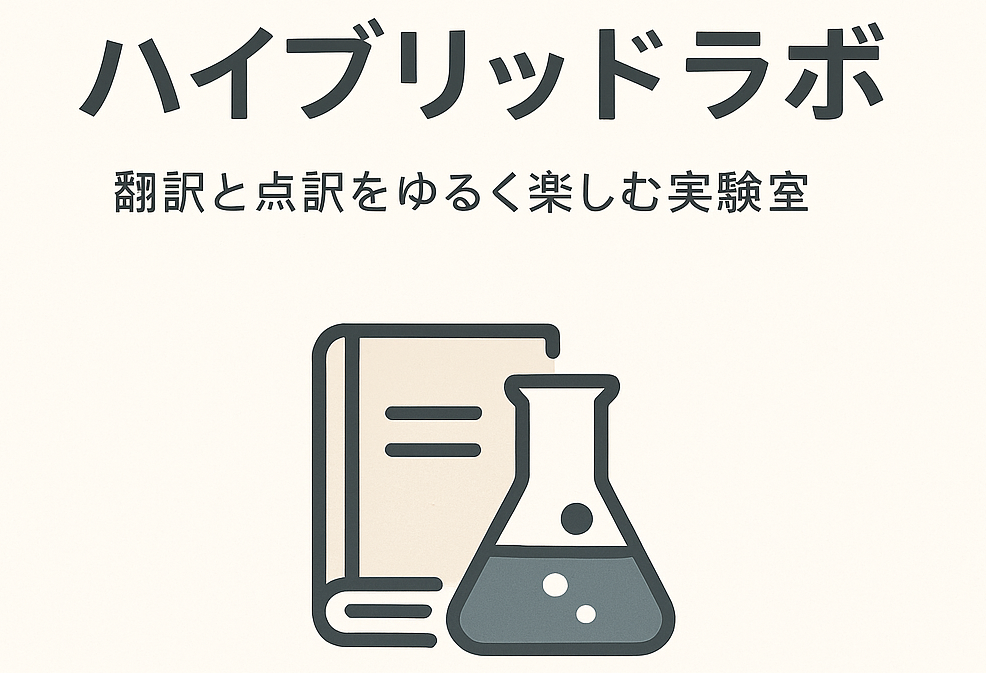
コメント